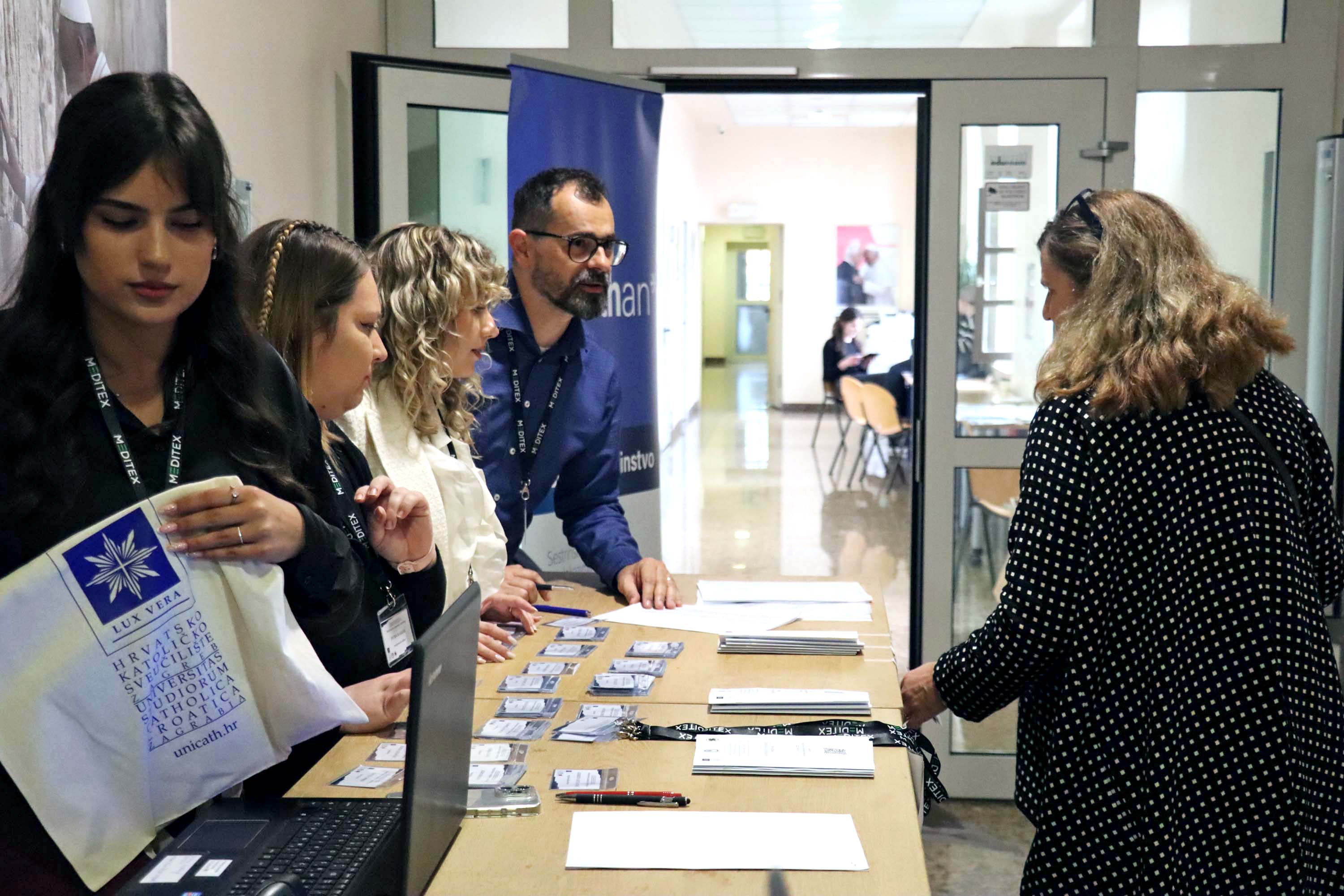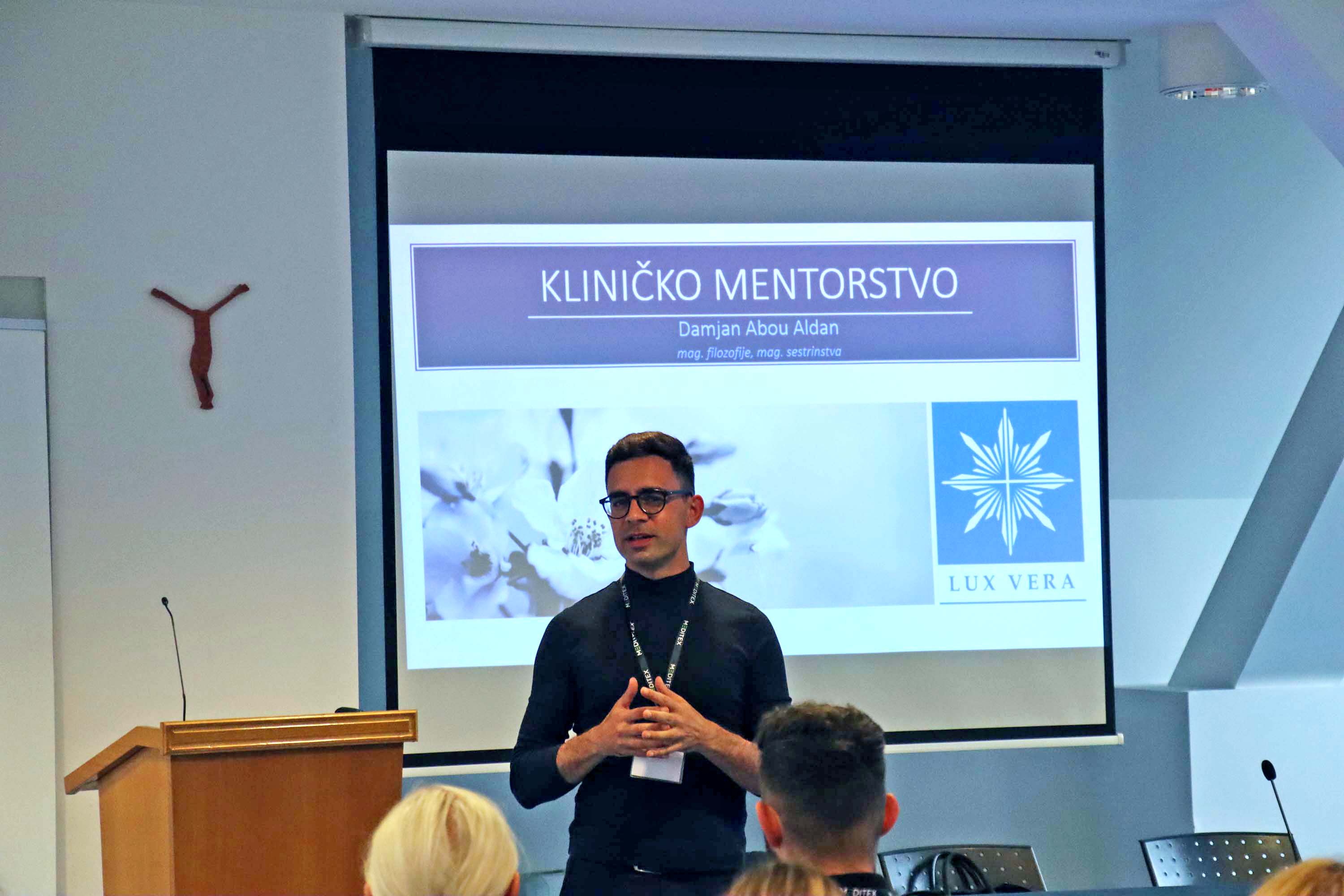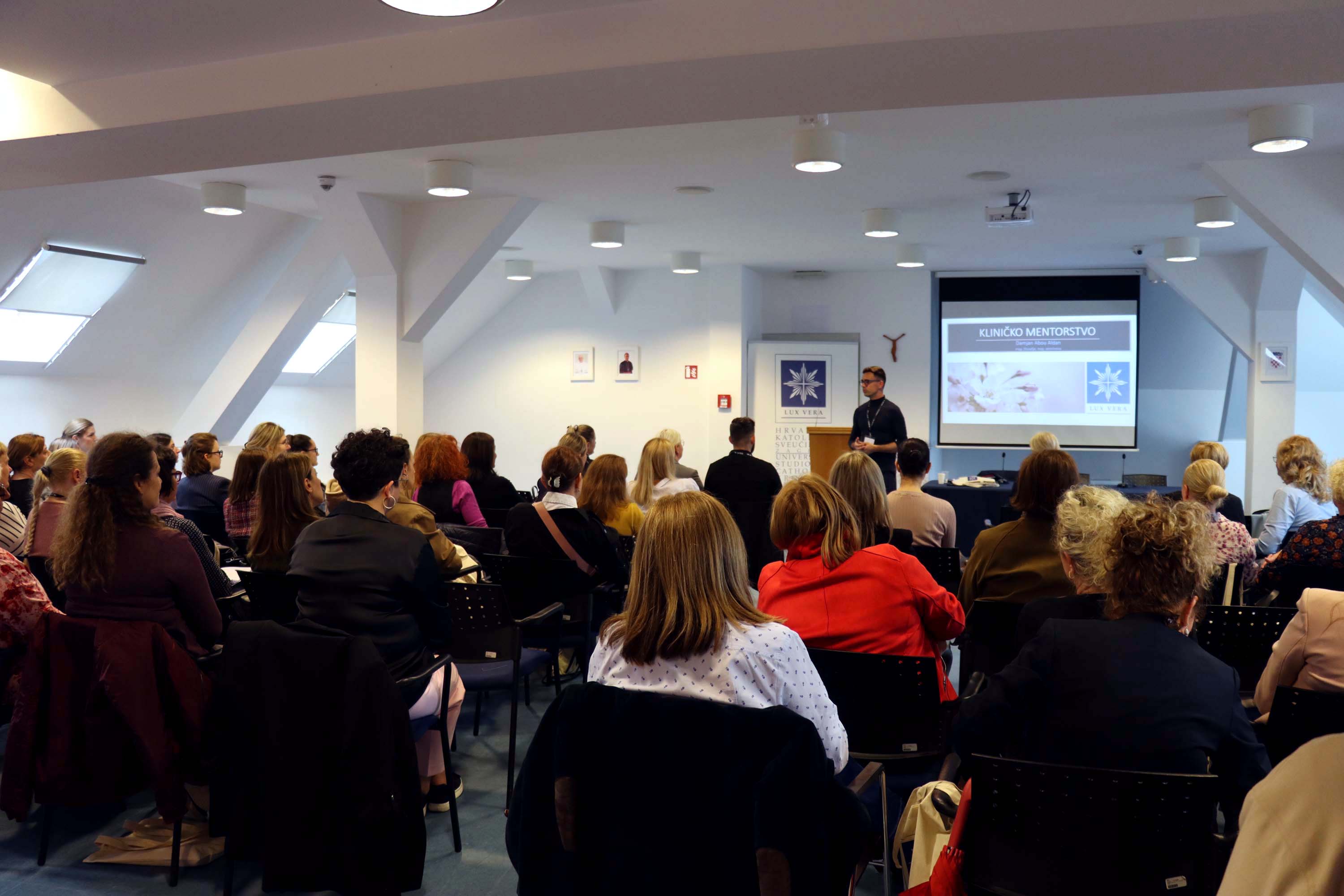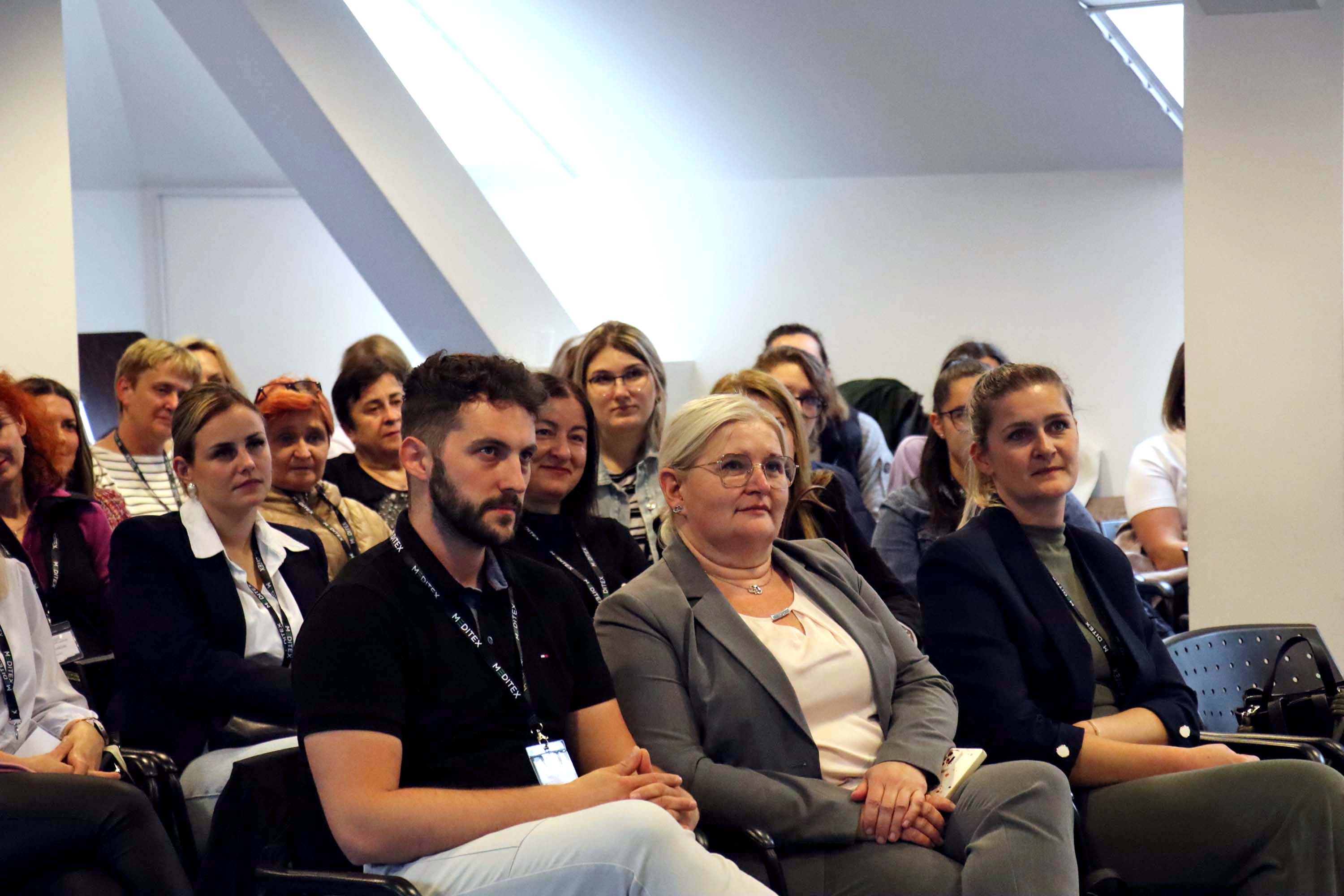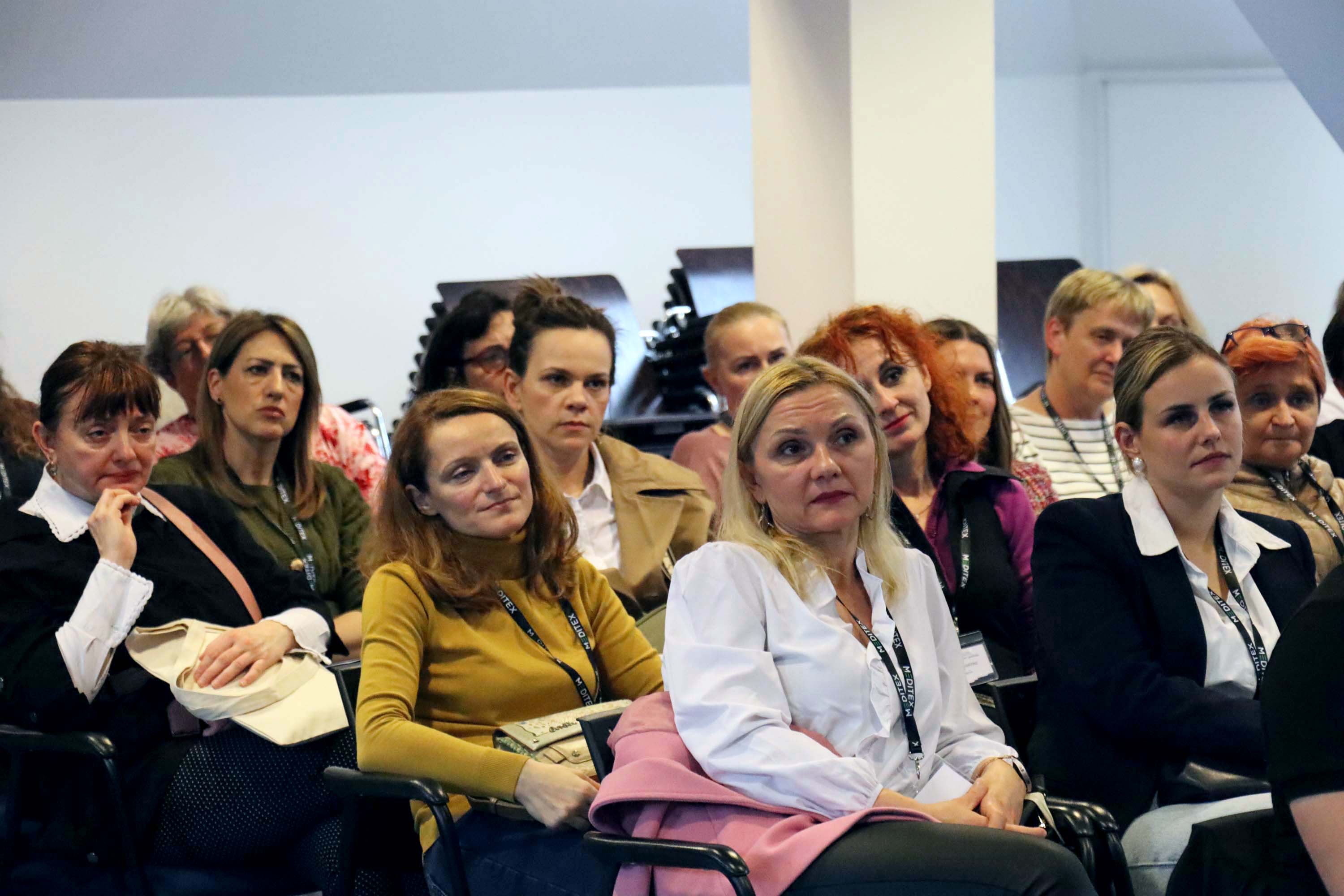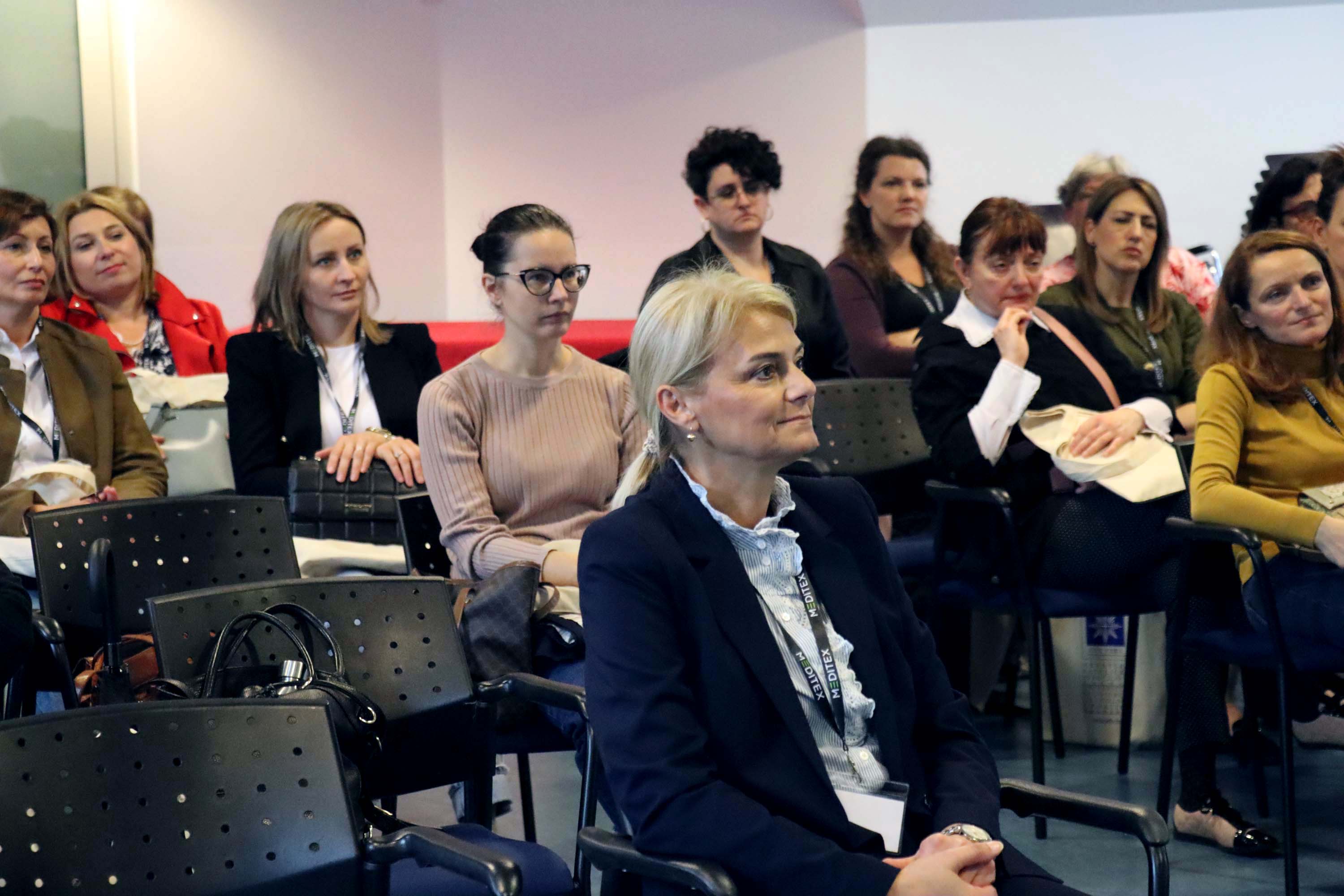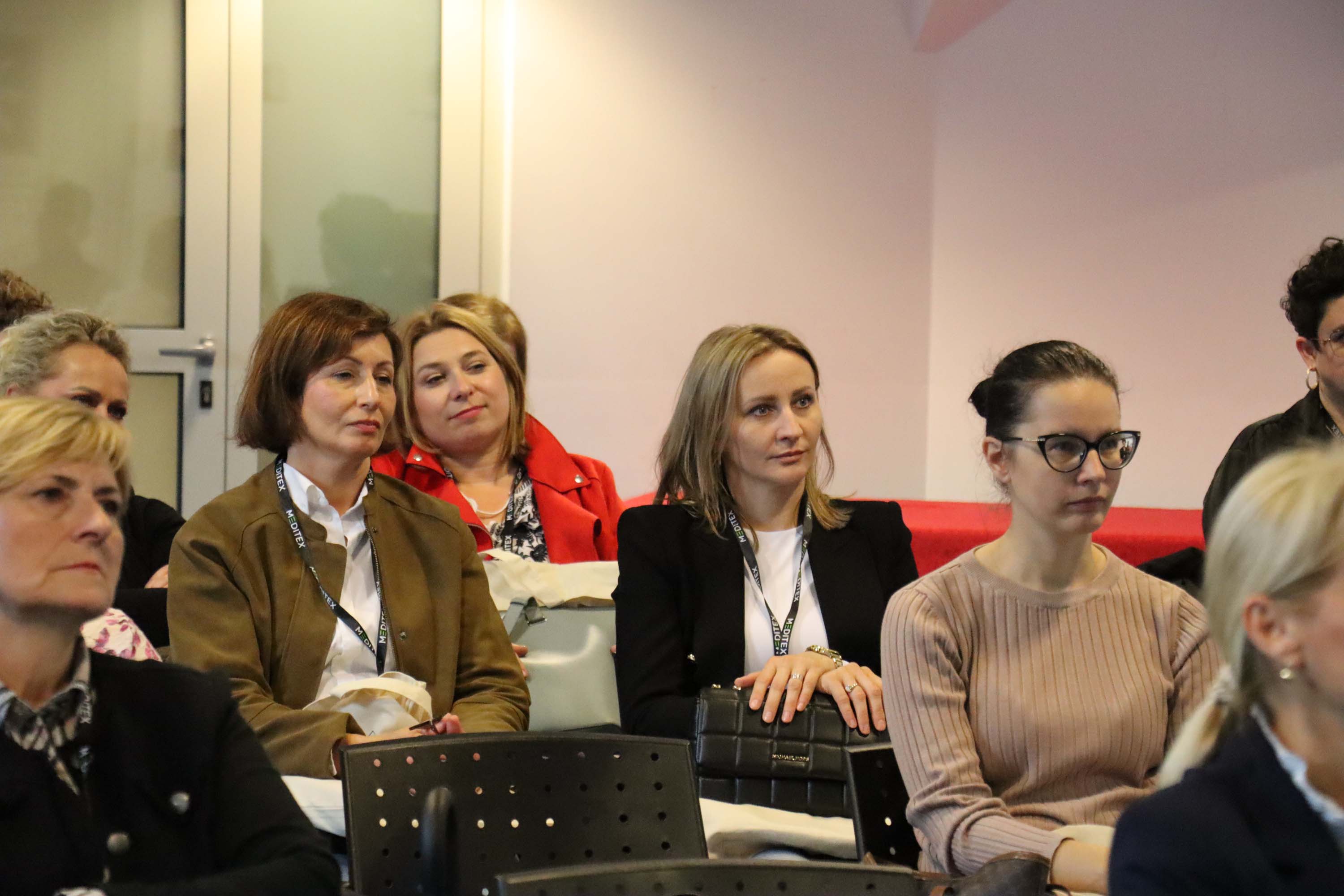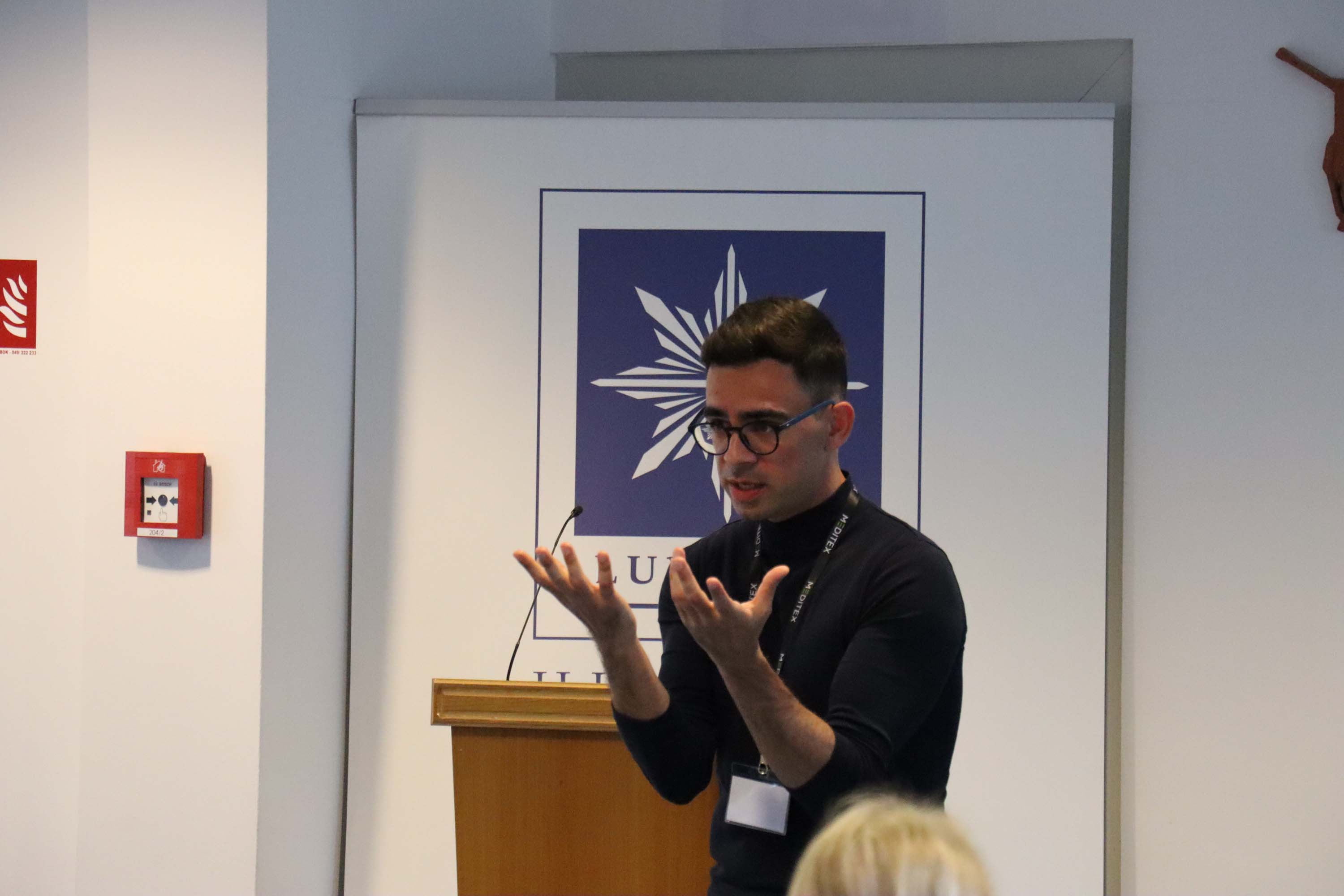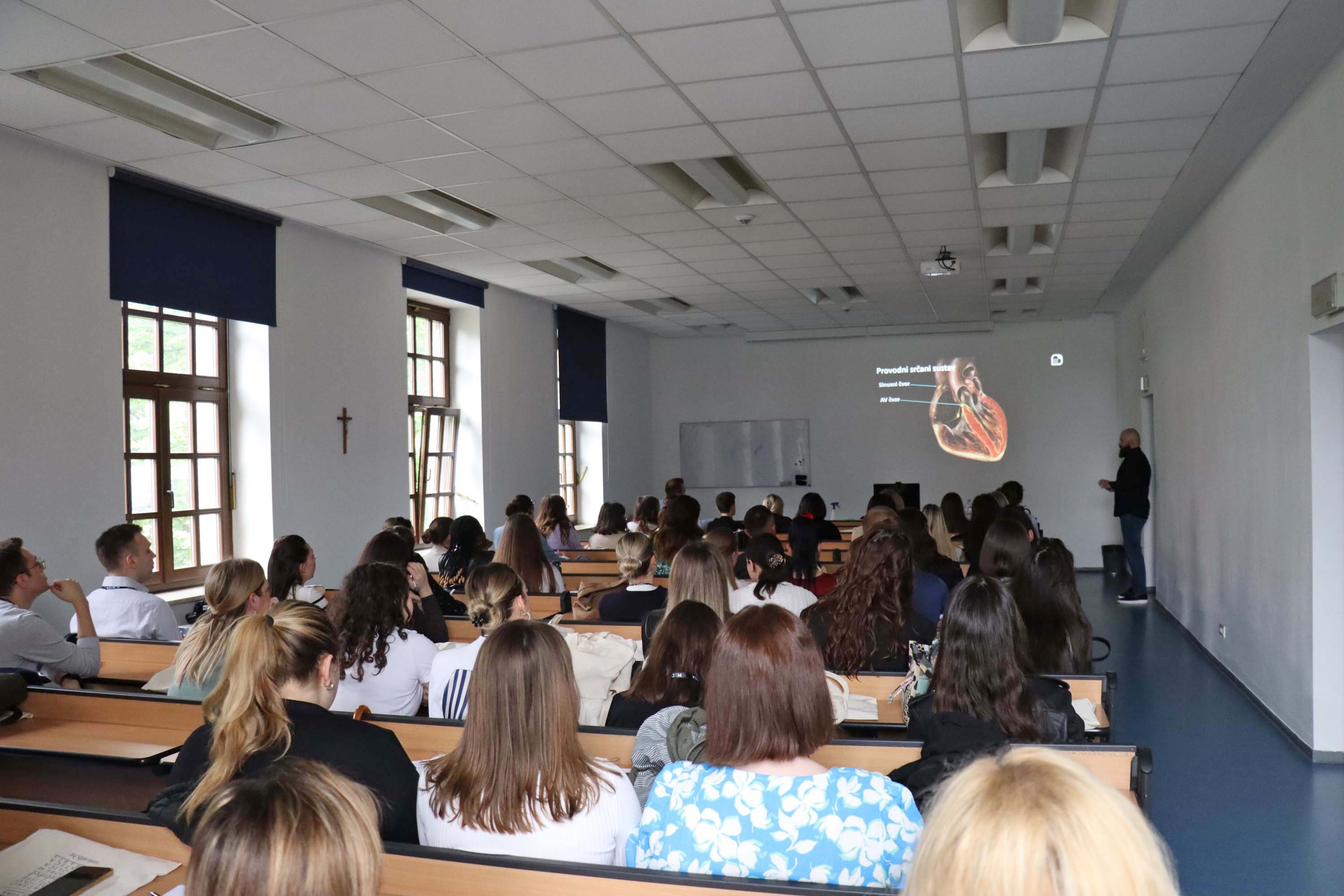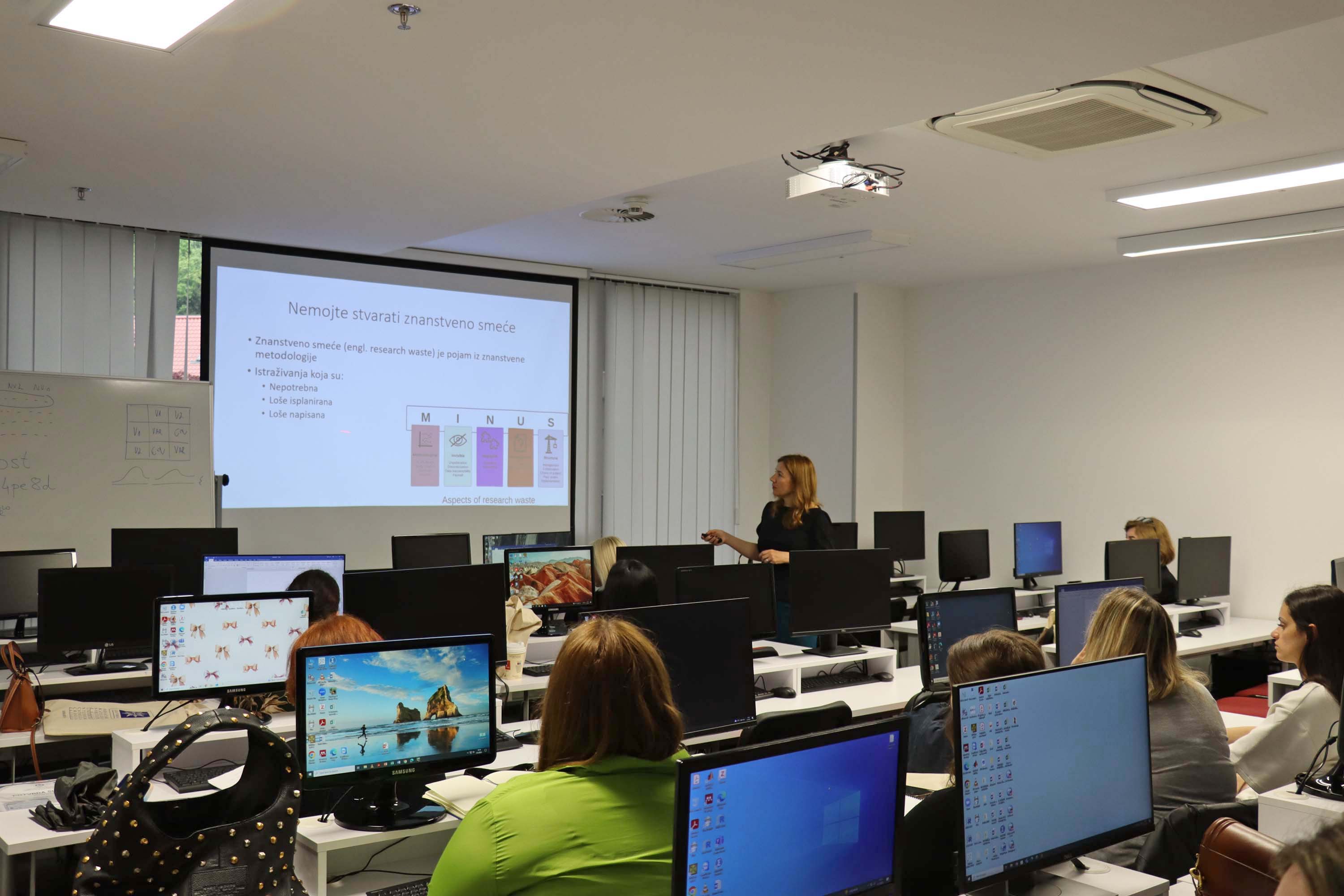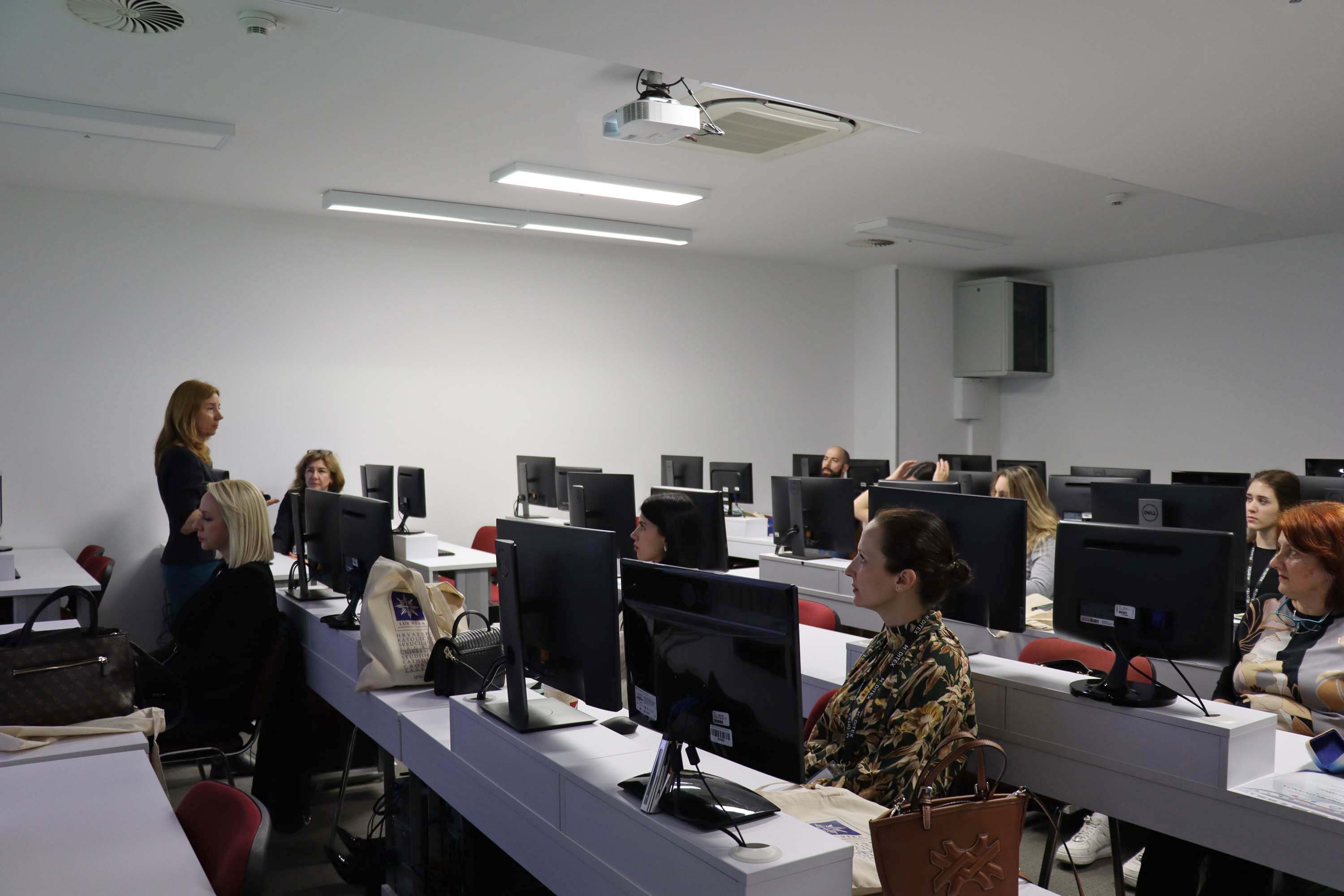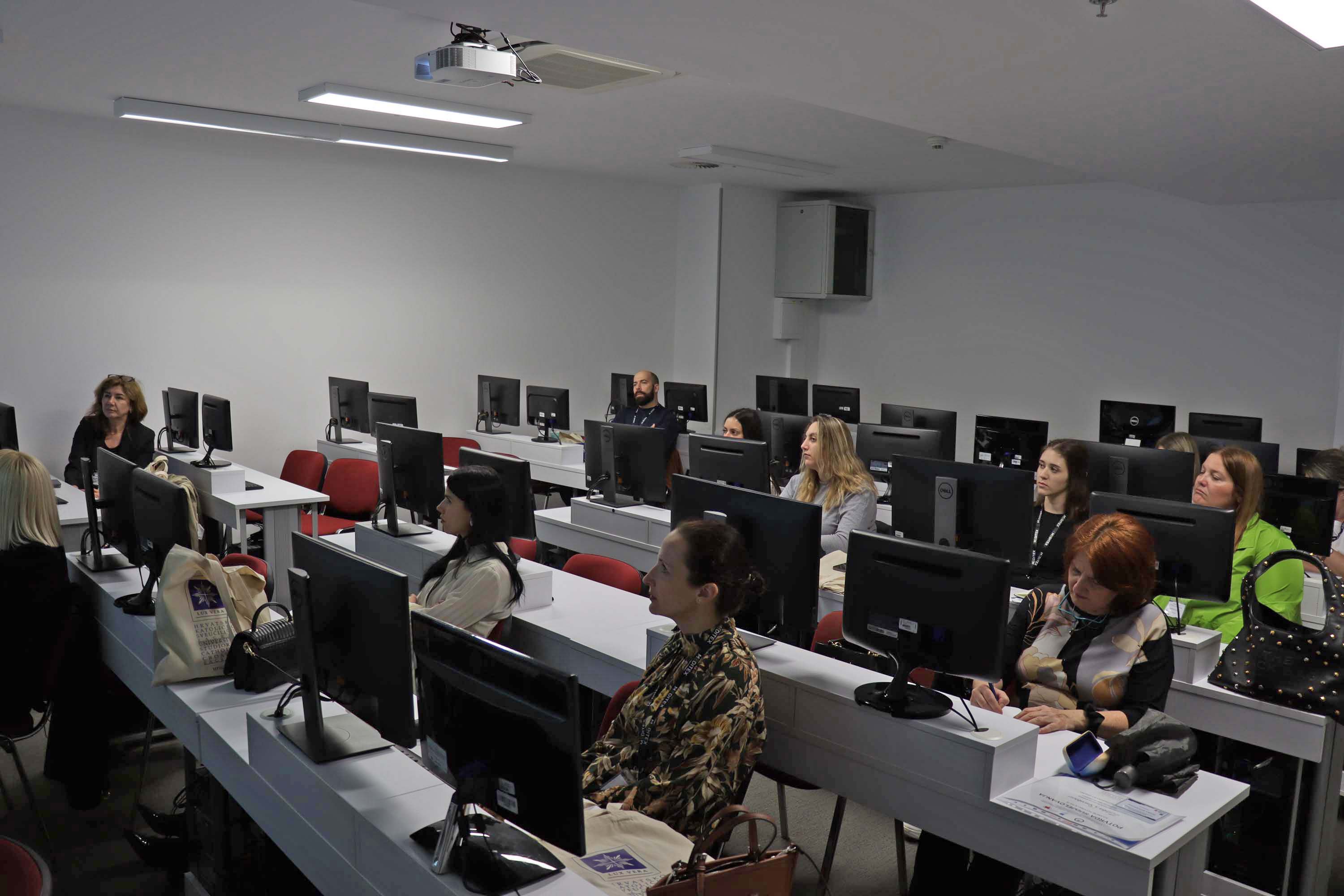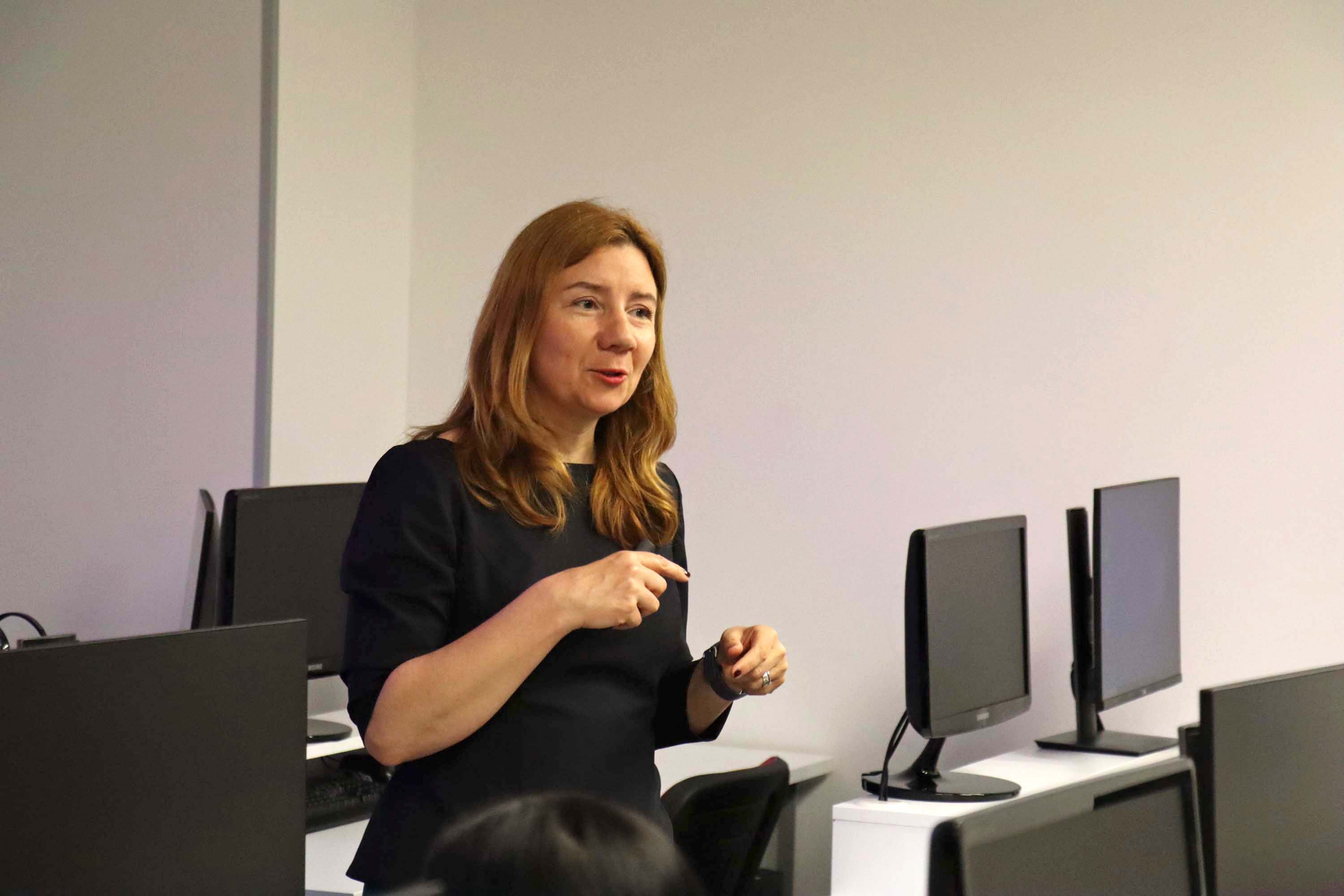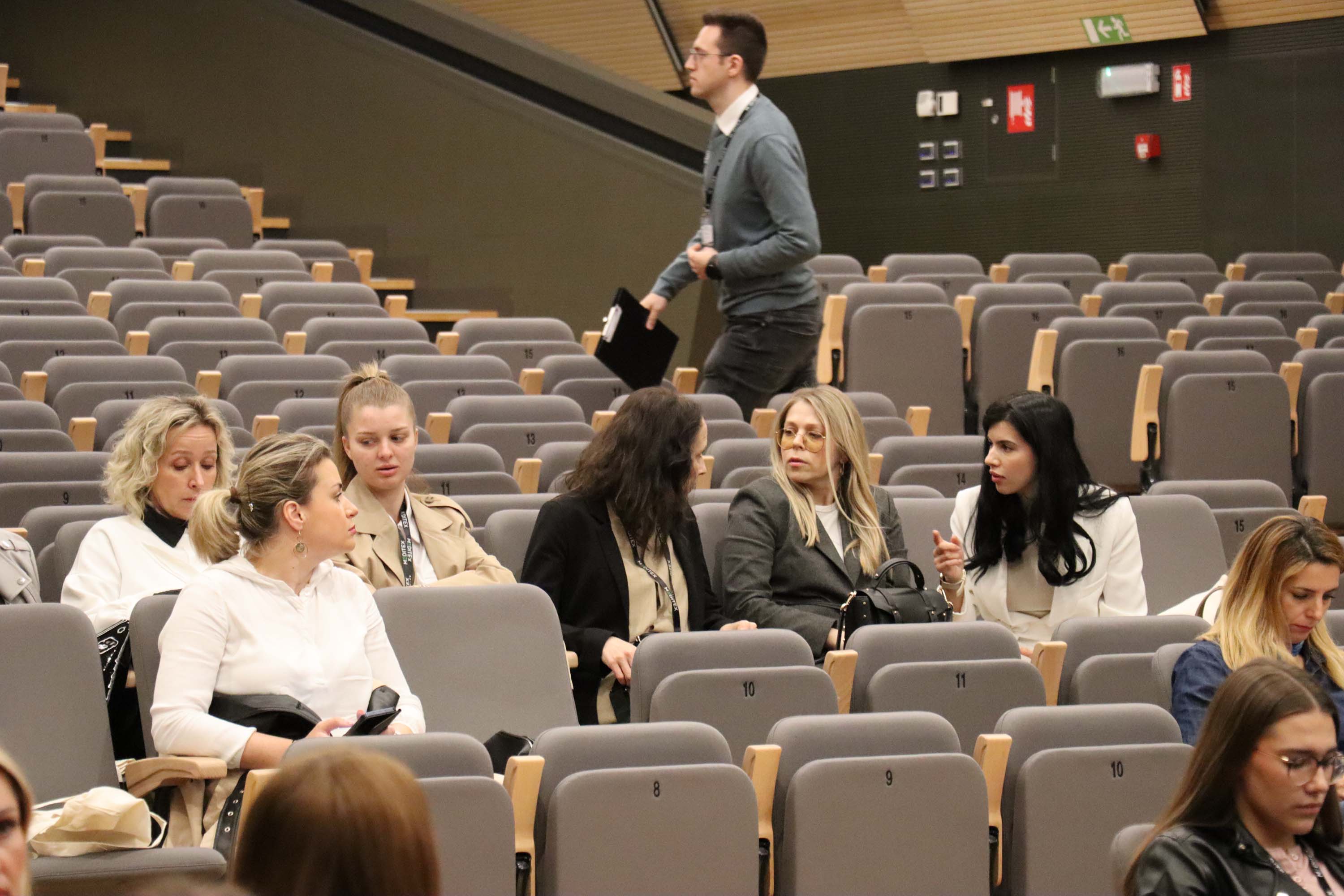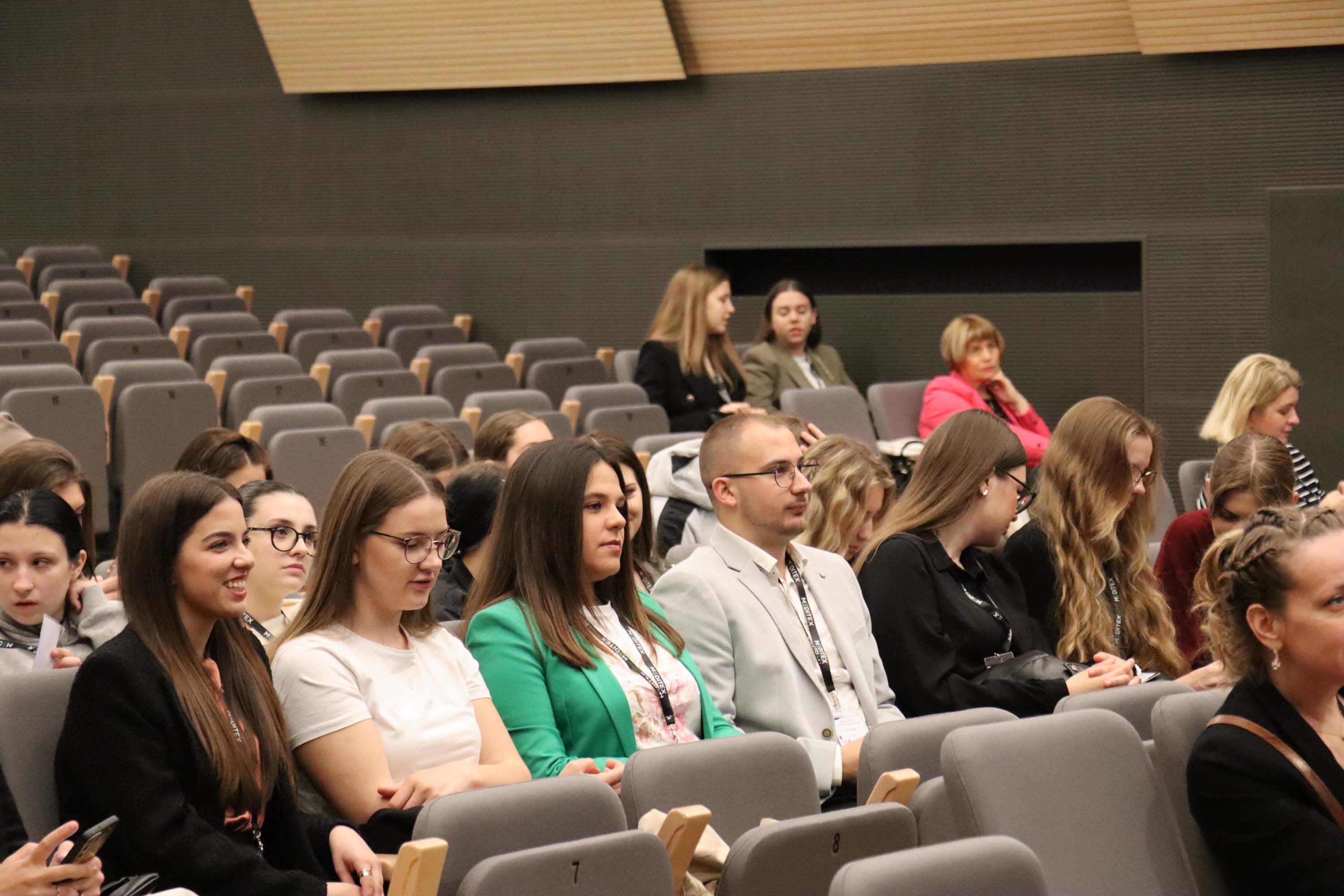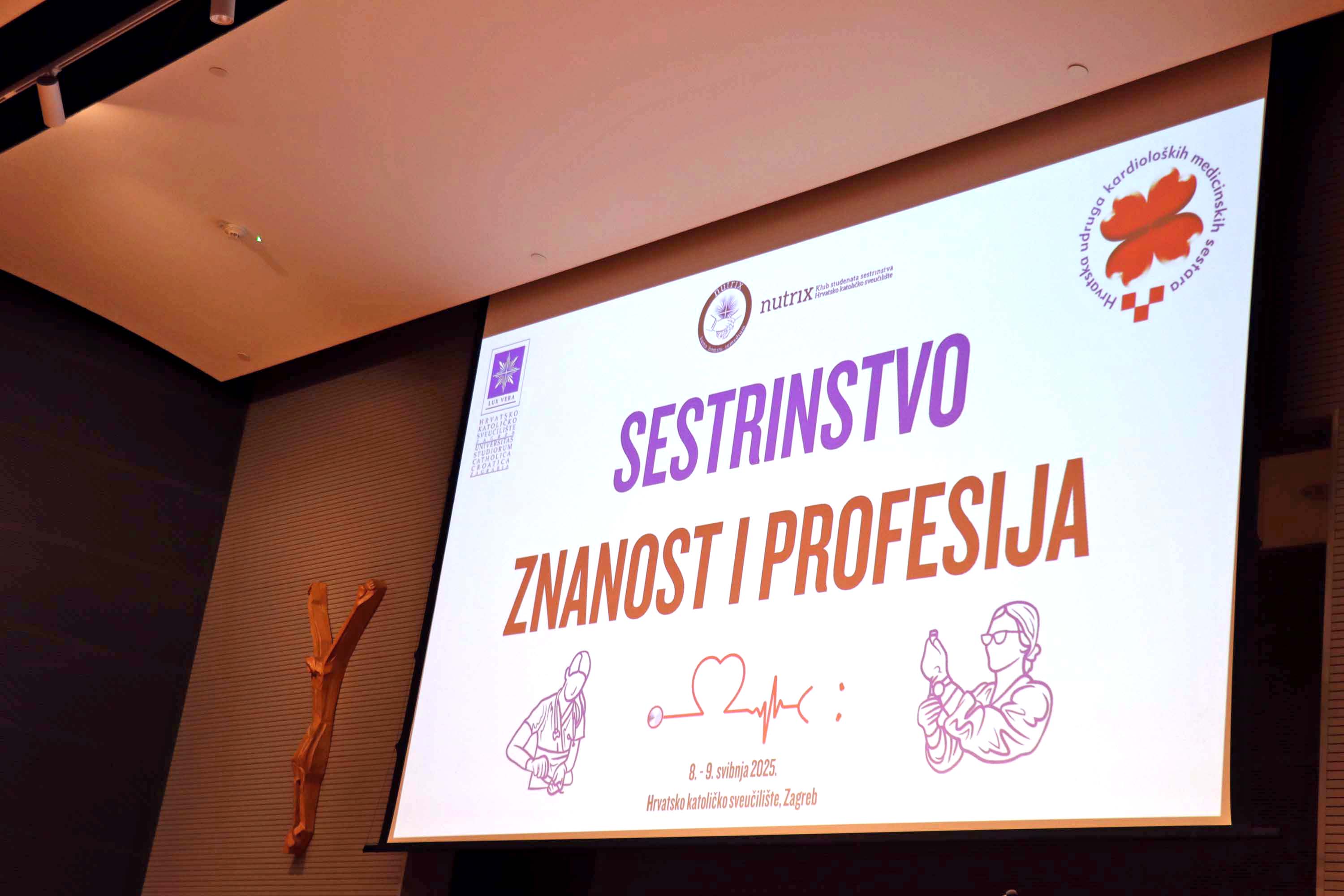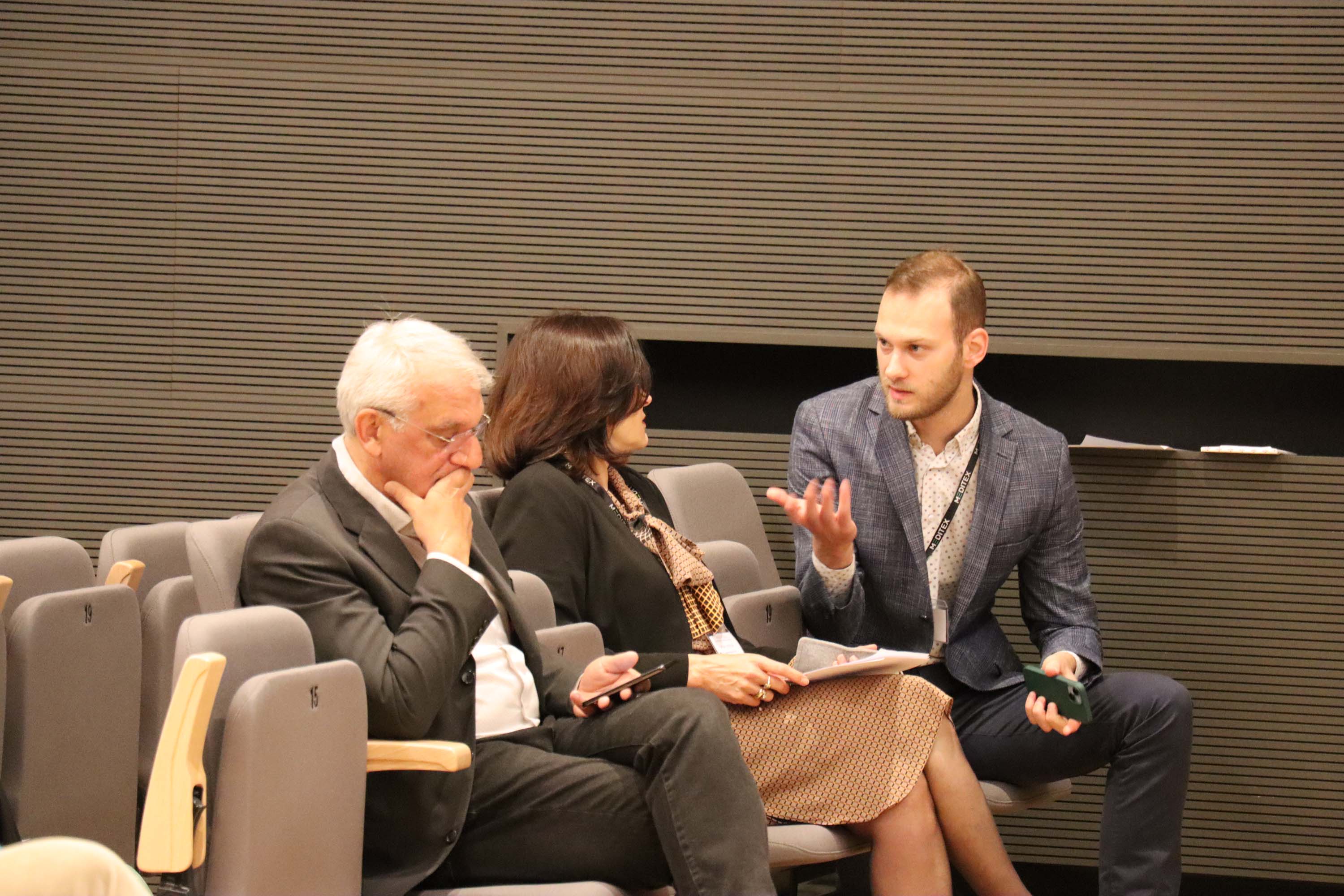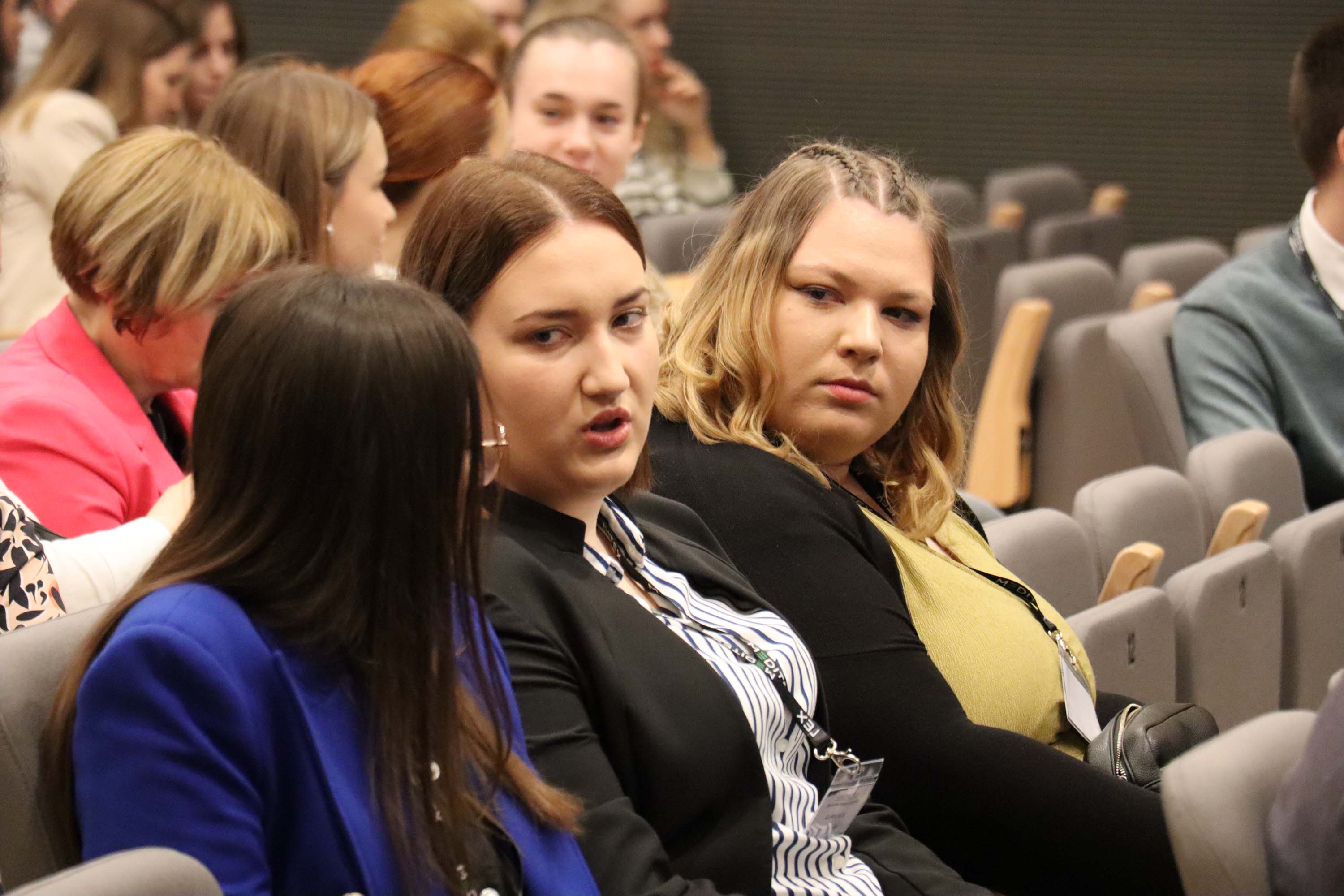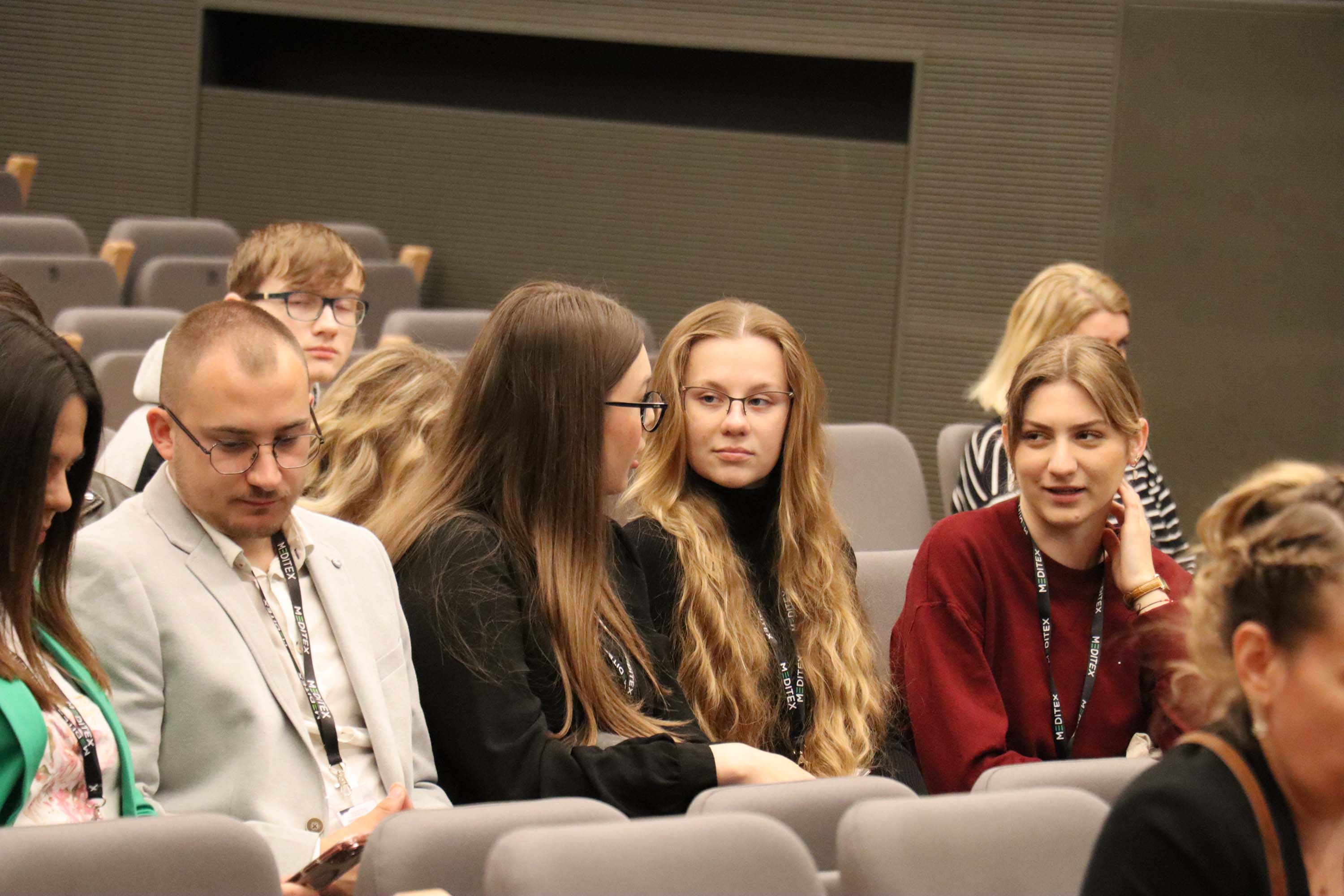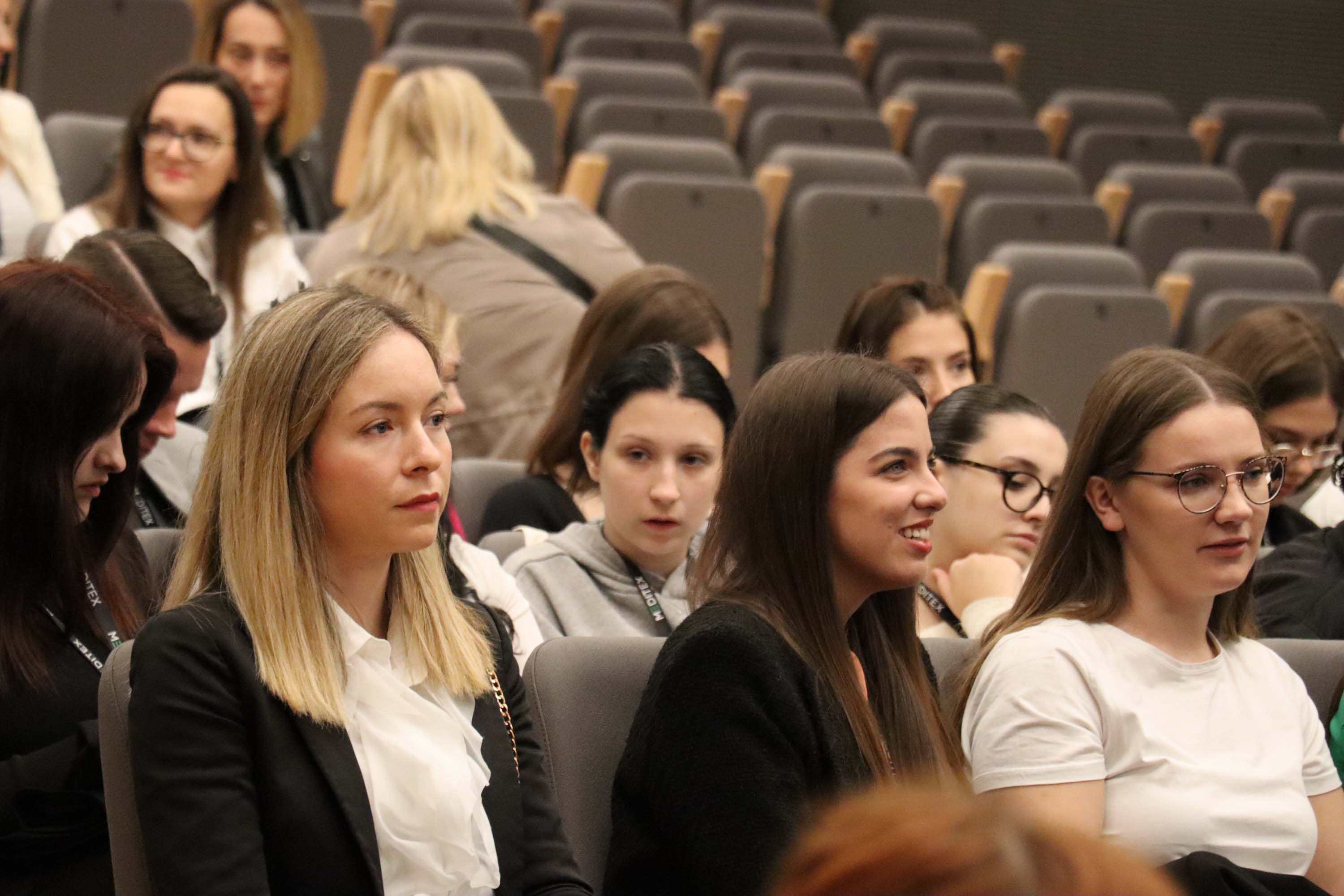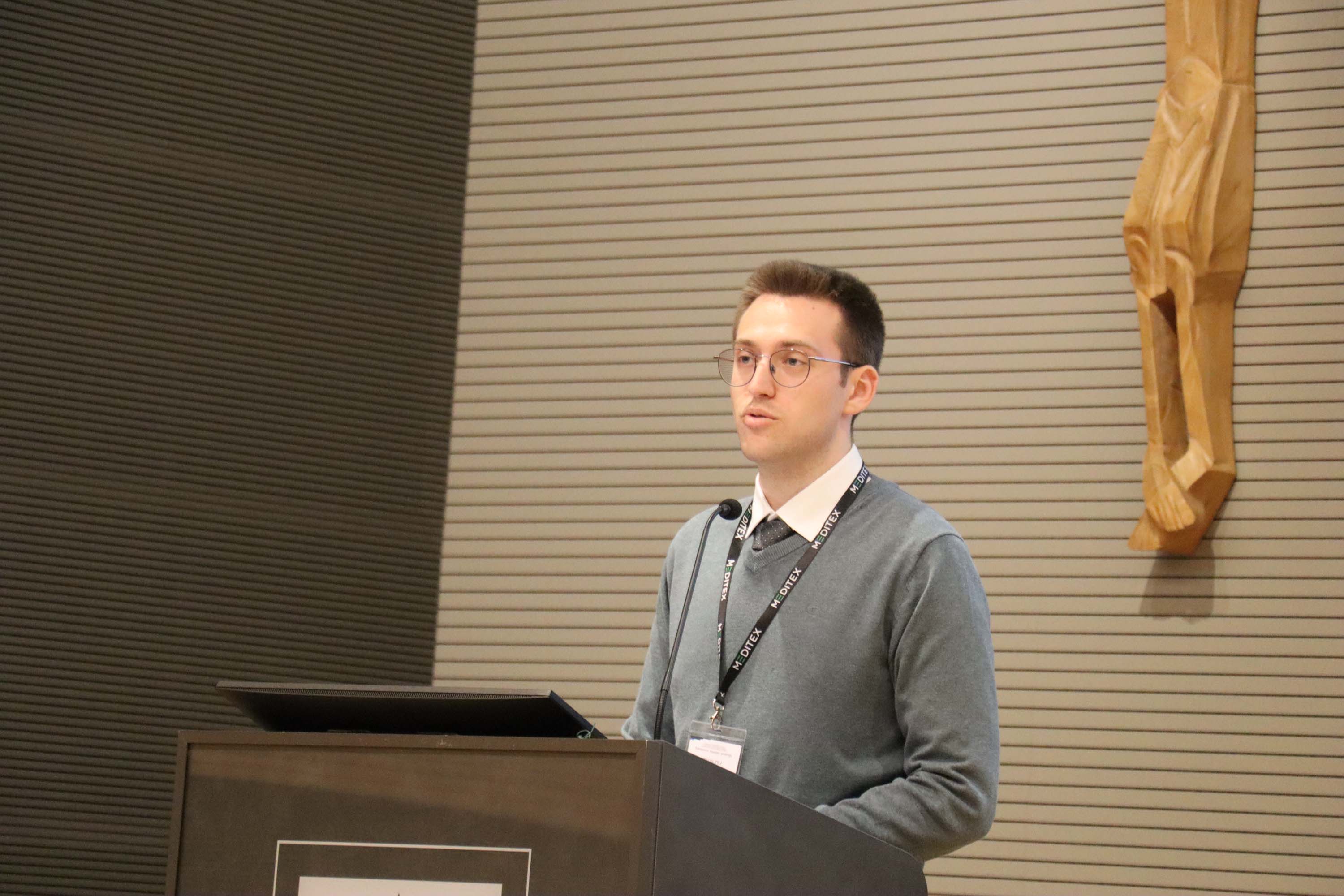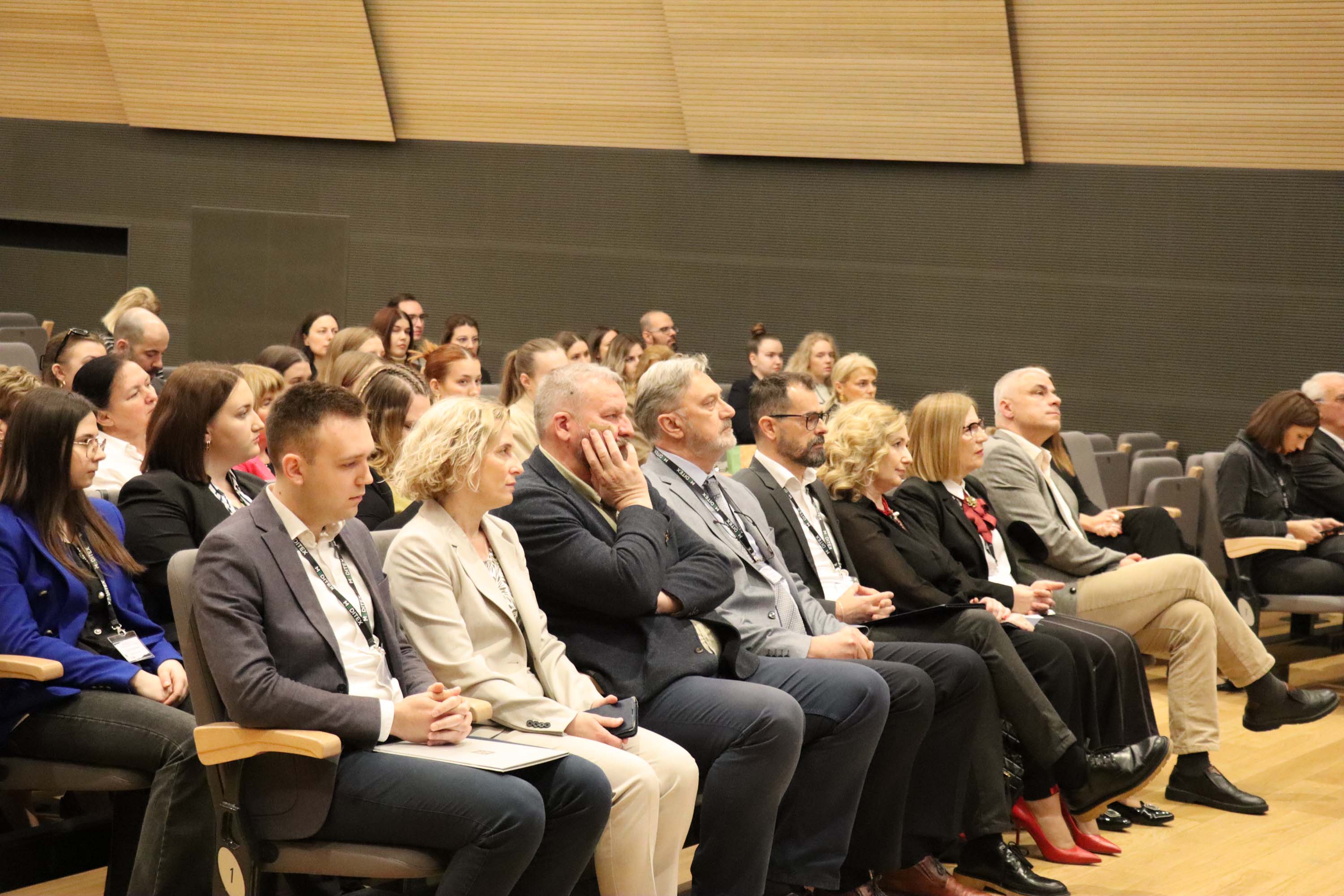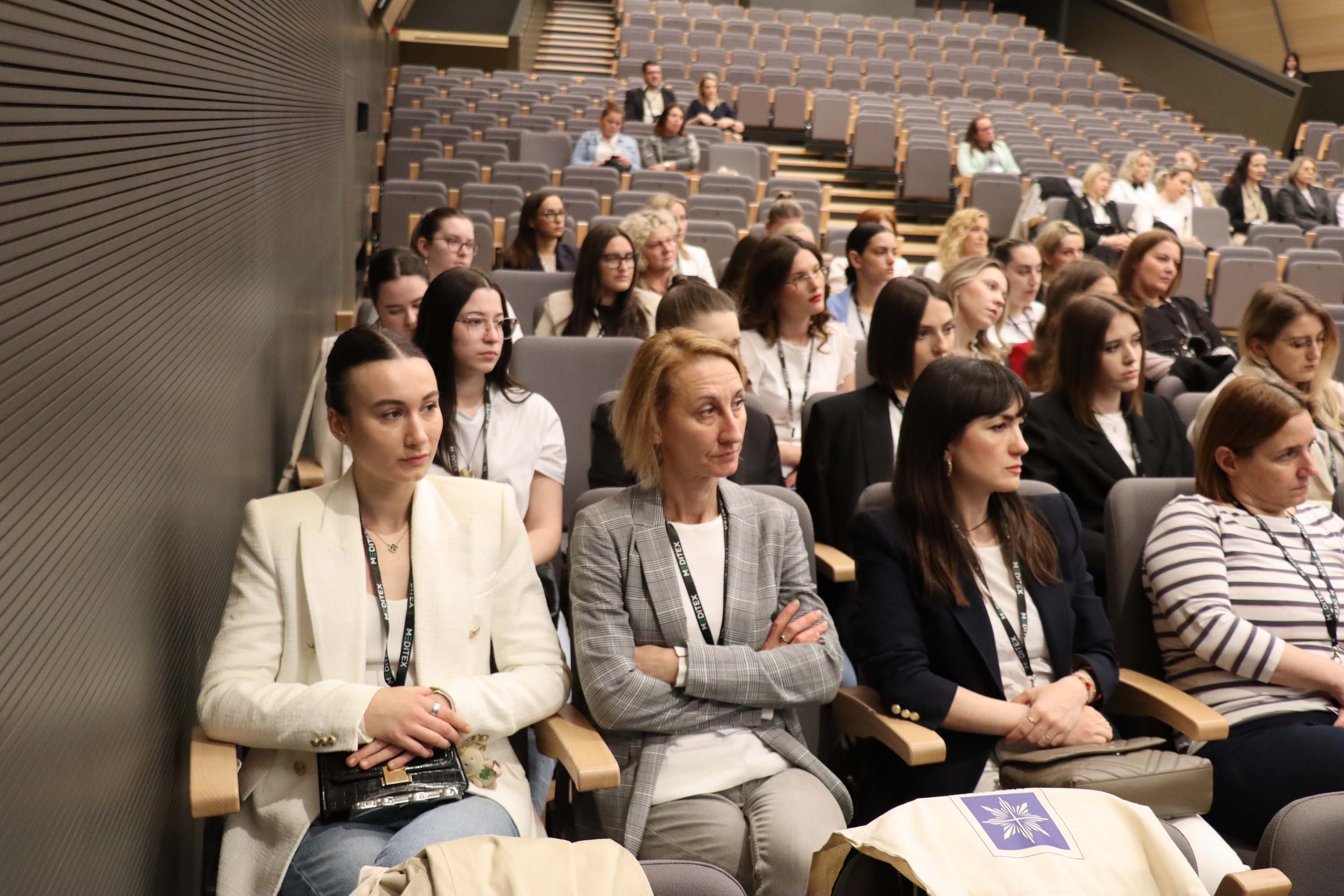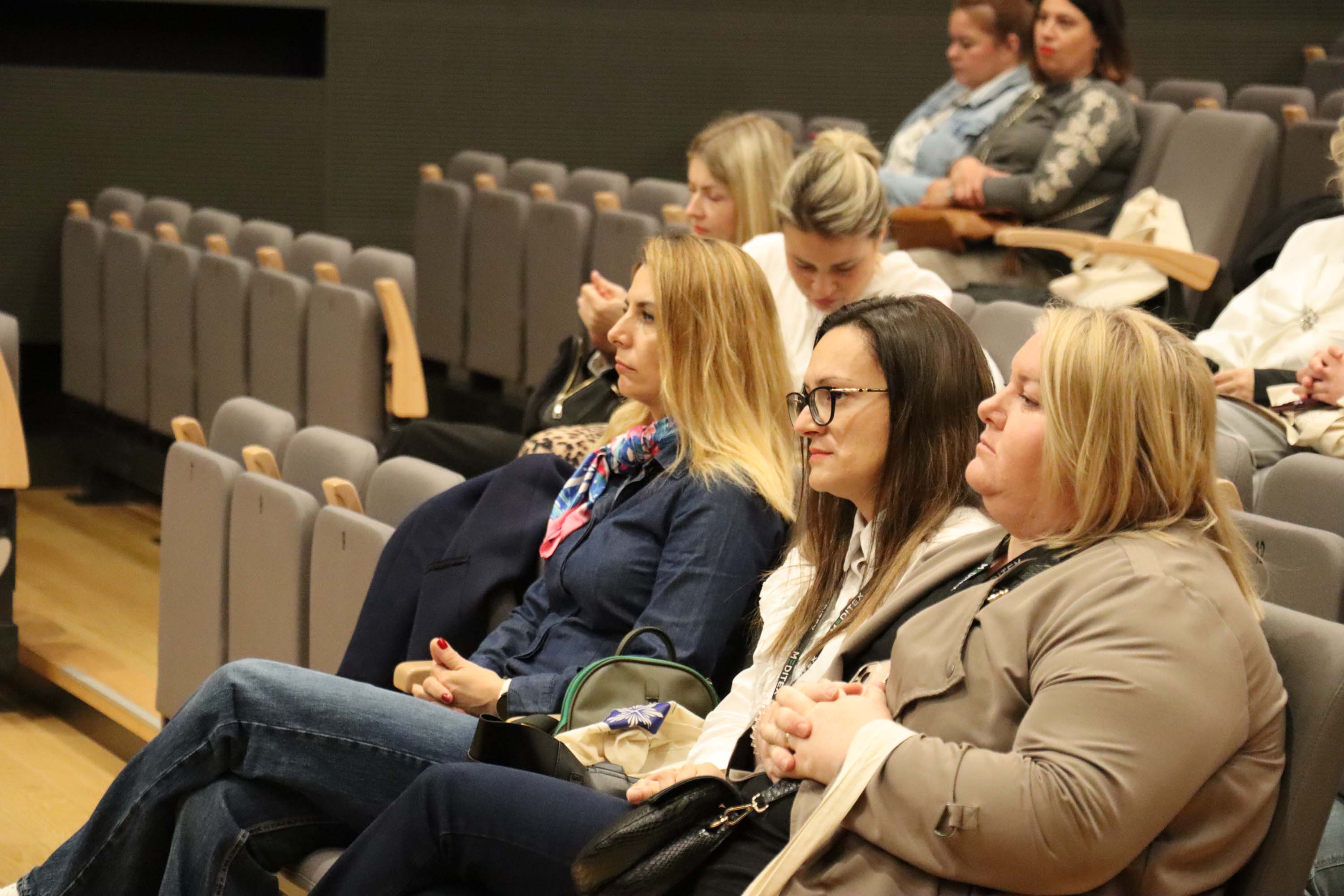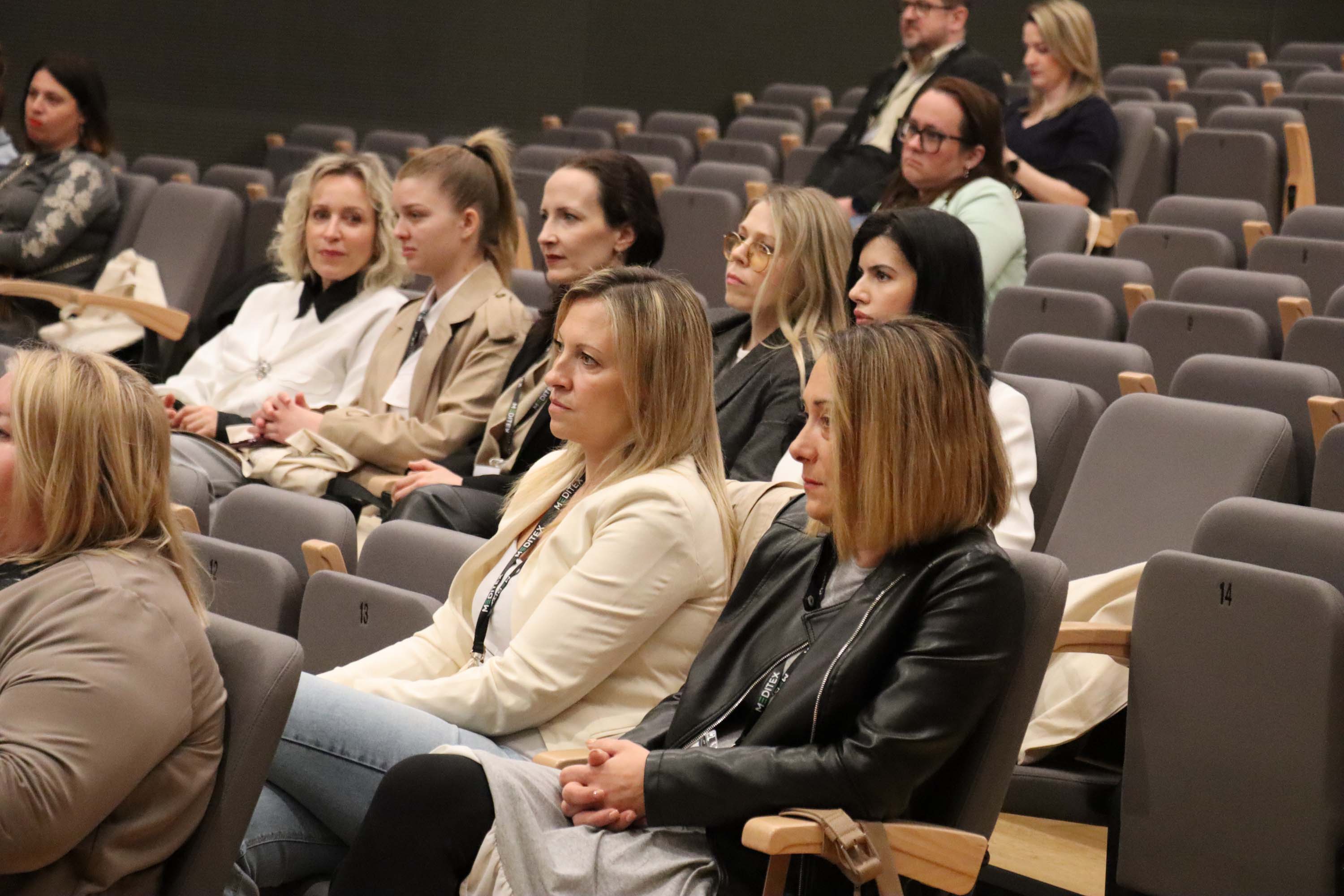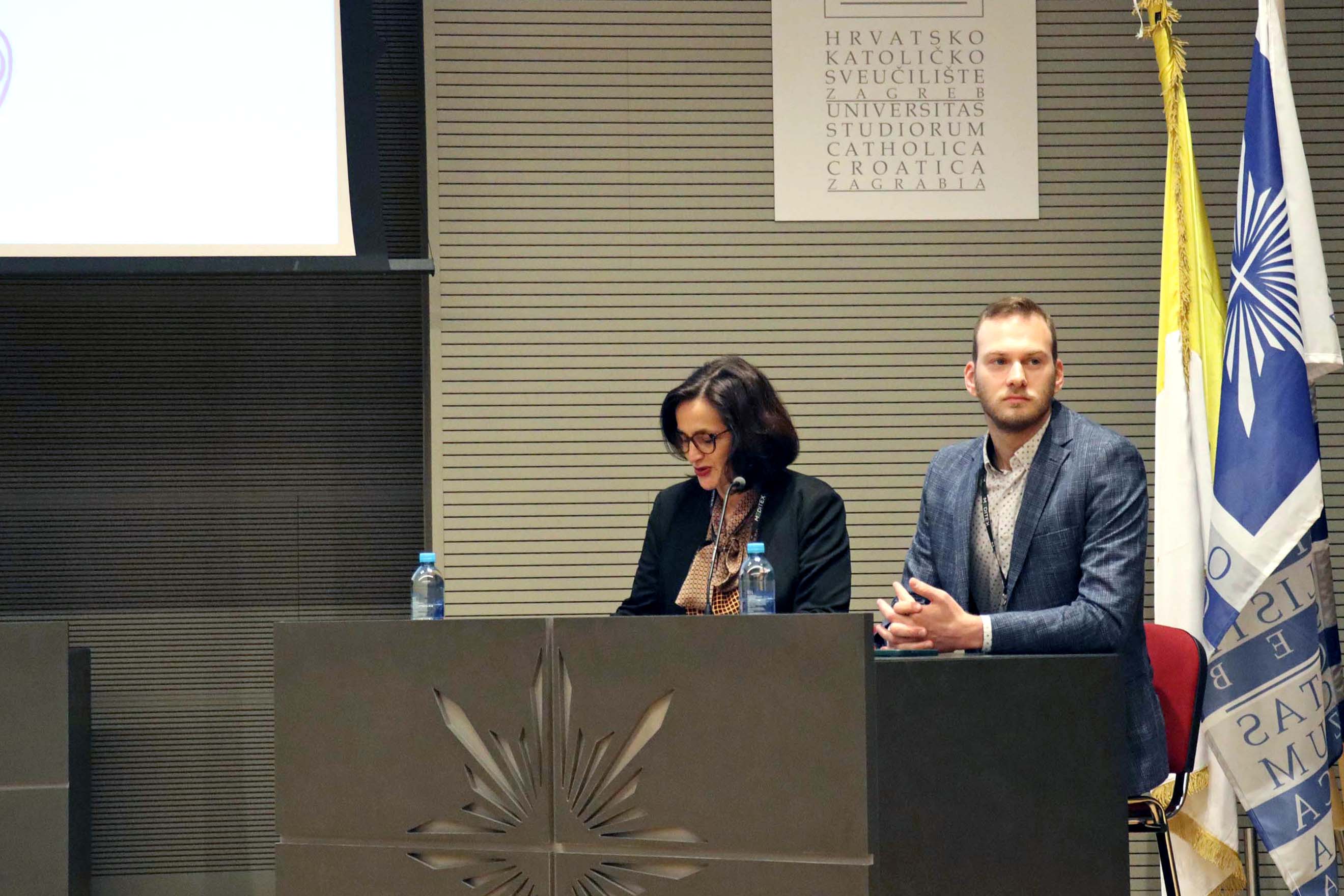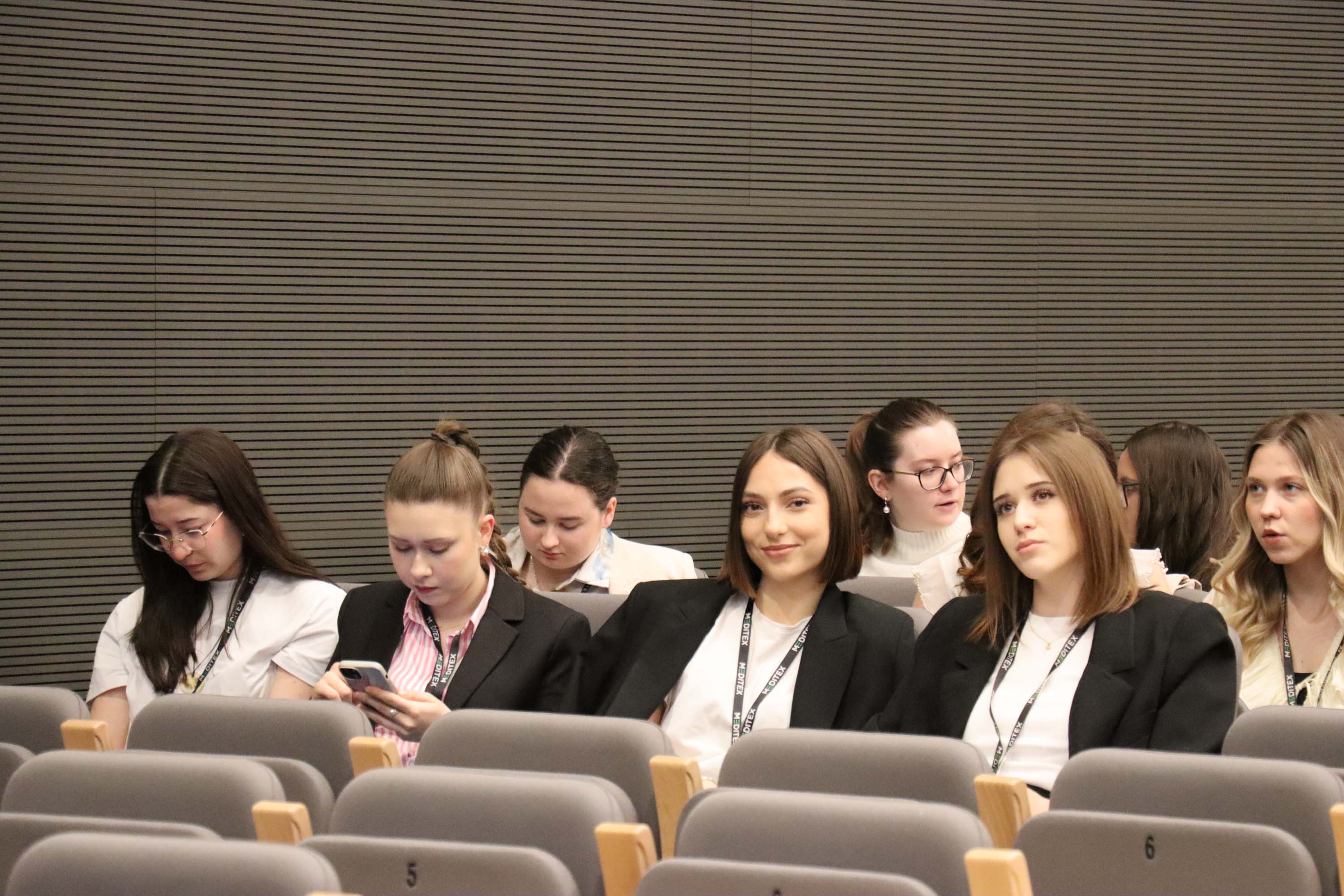Share
The Second Congress “Nursing: Science and Profession” Held
On Thursday, May 8 and Friday, May 9, 2025, the second congress organized by the University Department of Nursing and the Nursing Students’ Club of the Catholic University of Croatia (CUC), Nutrix, was held at the University. At the same time, the second symposium of the Education Working Group of the Croatian Association of Cardiology Nurses (HUMKS) also took place, under the shared title: “Nursing: Science and Profession.”
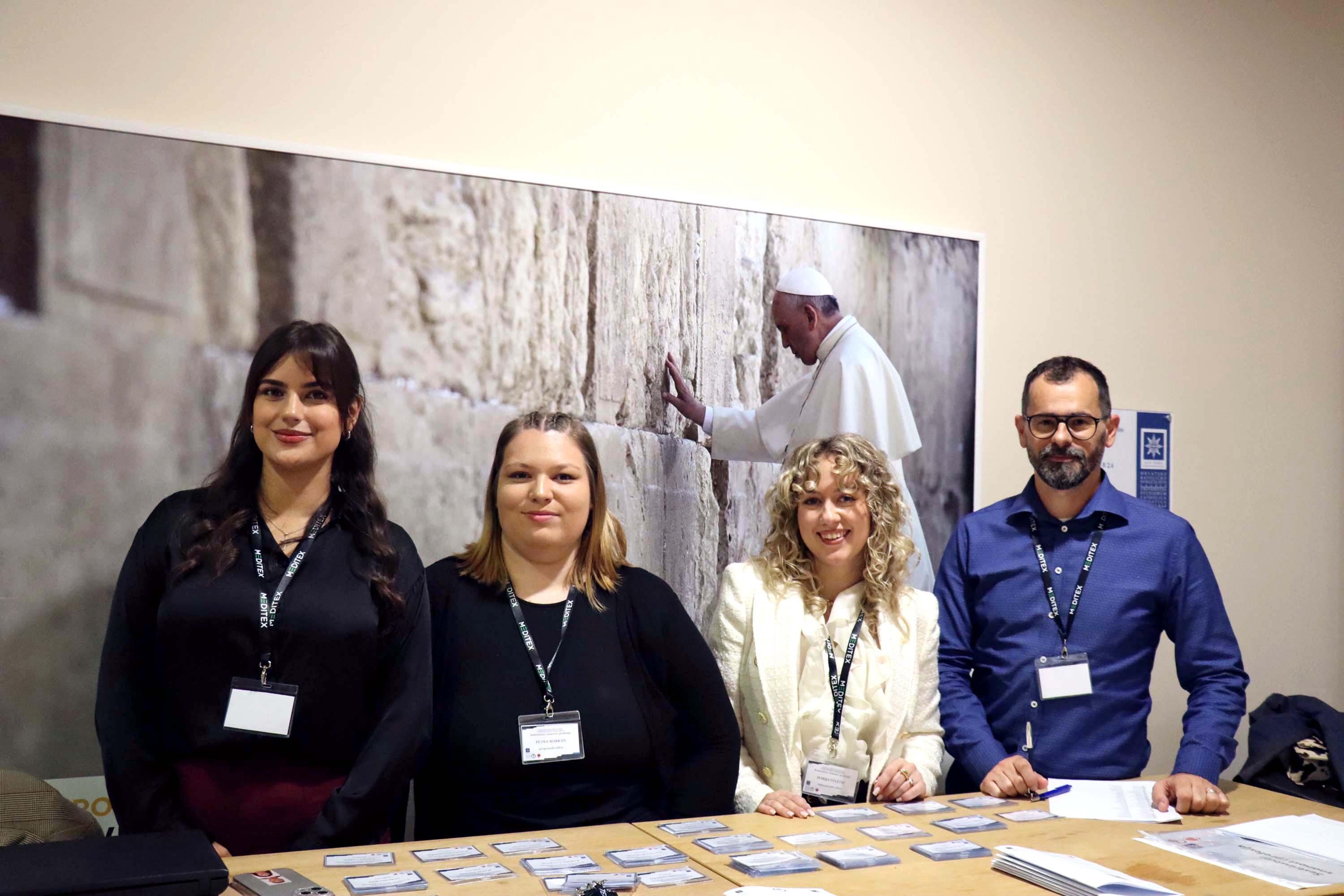
The event brought together over forty speakers, with a focus on the challenges and perspectives of the nursing profession, the health of healthcare workers, and placing patients at the center of care. The first day featured workshops such as “Clinical Mentoring” led by Damjan Abou Aldan, “Basics of Scientific Methodology: From Research Design to Publishing” led by Prof. Livija Puljak, PhD, and the “ECG Course for Nurses and Related Professions” led by mag. med. techn., univ. mag. admin. sanit., ECDSAP.
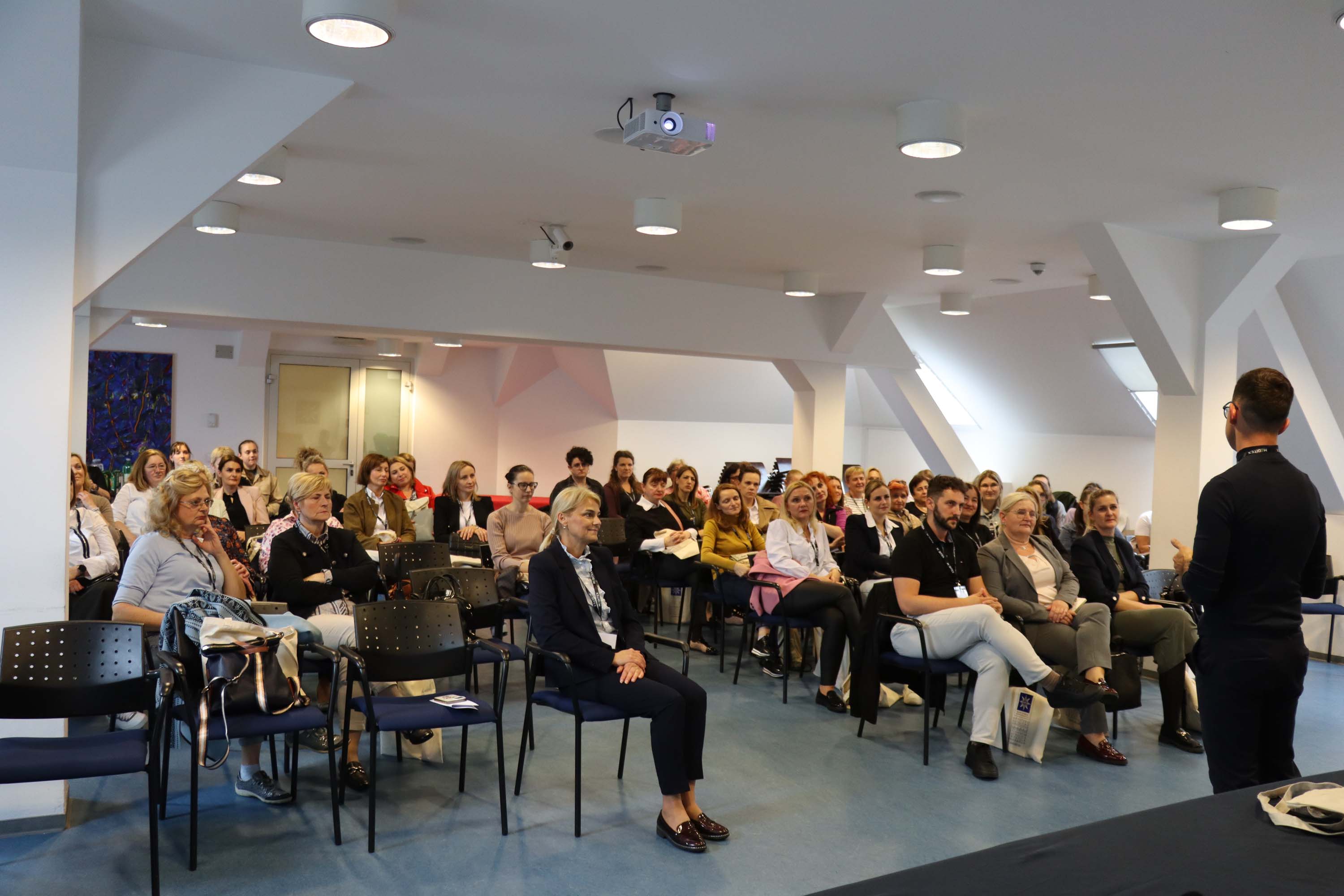
The second day began with a formal opening in the University’s Great Hall. Speaking on behalf of the University was Prof. Roberto Antolović, PhD, CUC Vice-Rector for Science, who emphasized: “Nursing is a science, a profession, and a discipline that is rapidly evolving. It is also a field with significant scientific demands, facing challenges such as a shortage of professional and academic staff. However, congresses like this one and the scientific findings presented show we are on the right path. I believe we are reaching new heights in nursing science and the profession.”
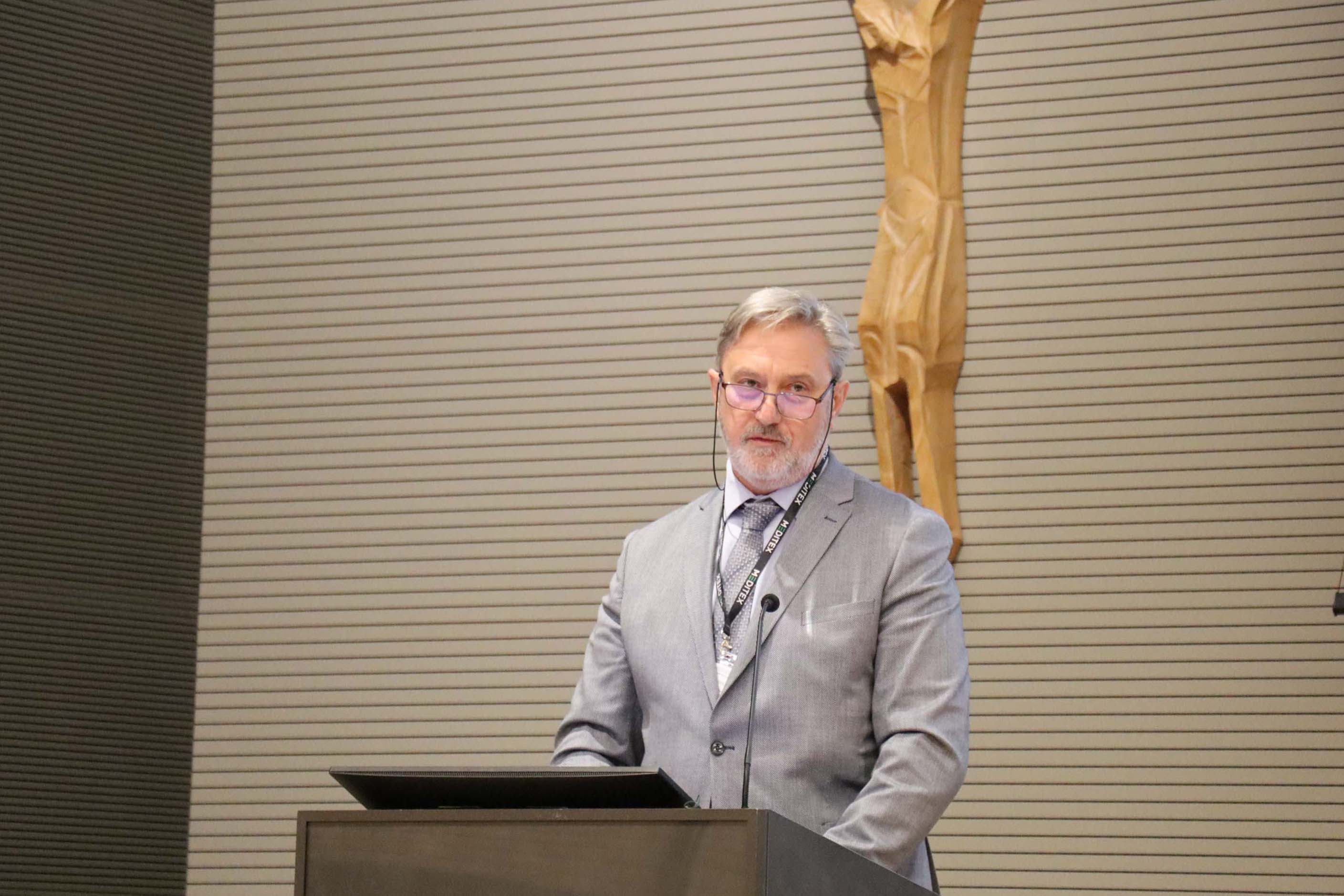
Ivana Portolan Pajić, MD, univ. mag. sanit. publ., Head of the Sector for Primary Healthcare and Health Tourism at the Ministry of Health, addressed attendees on behalf of the Ministry, saying: “We see you, our colleagues, as change leaders—professionals demonstrating that Croatian nursing is moving forward. It’s growing, developing, and contributing to better health policy and a stronger healthcare system.”
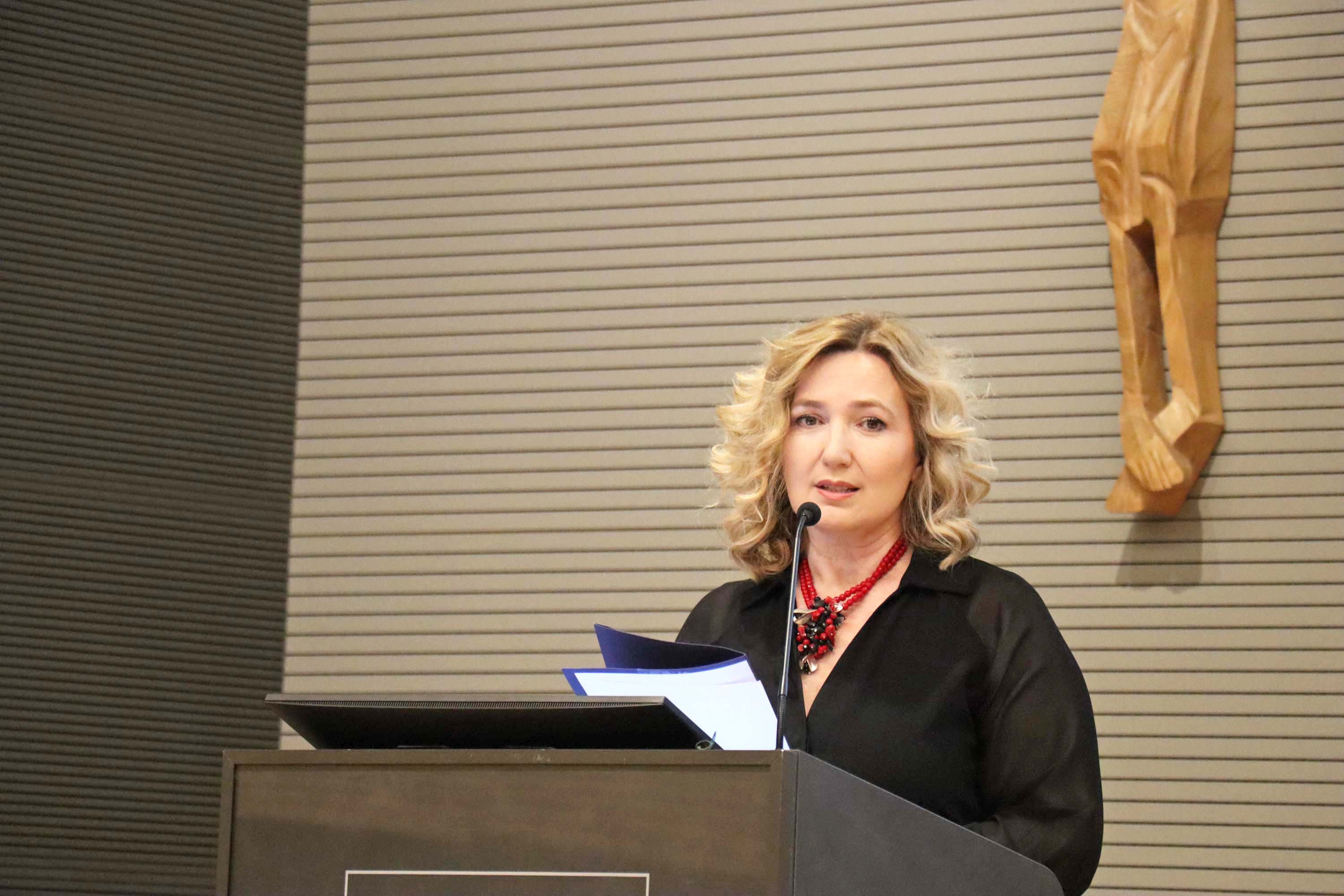
Ana Ljubas, mag. med. techn., HUMKS President, Assistant Director and Head Nurse at Zagreb University Hospital Centre, invoked the words of the newly elected Pope Leo XIV on the importance of “building bridges” among people: “Nursing is a calling, a vocation, and this event shows that the CUC nurtures wonderful young people who are developing within science. Dear students, I invite you to cherish the calling that led you to pursue further education—grow, engage in the system, work, and help. In these turbulent times, we must refocus on the sick. The well-being of ill and vulnerable Croatians lies in the hands of nurses and caregivers.”
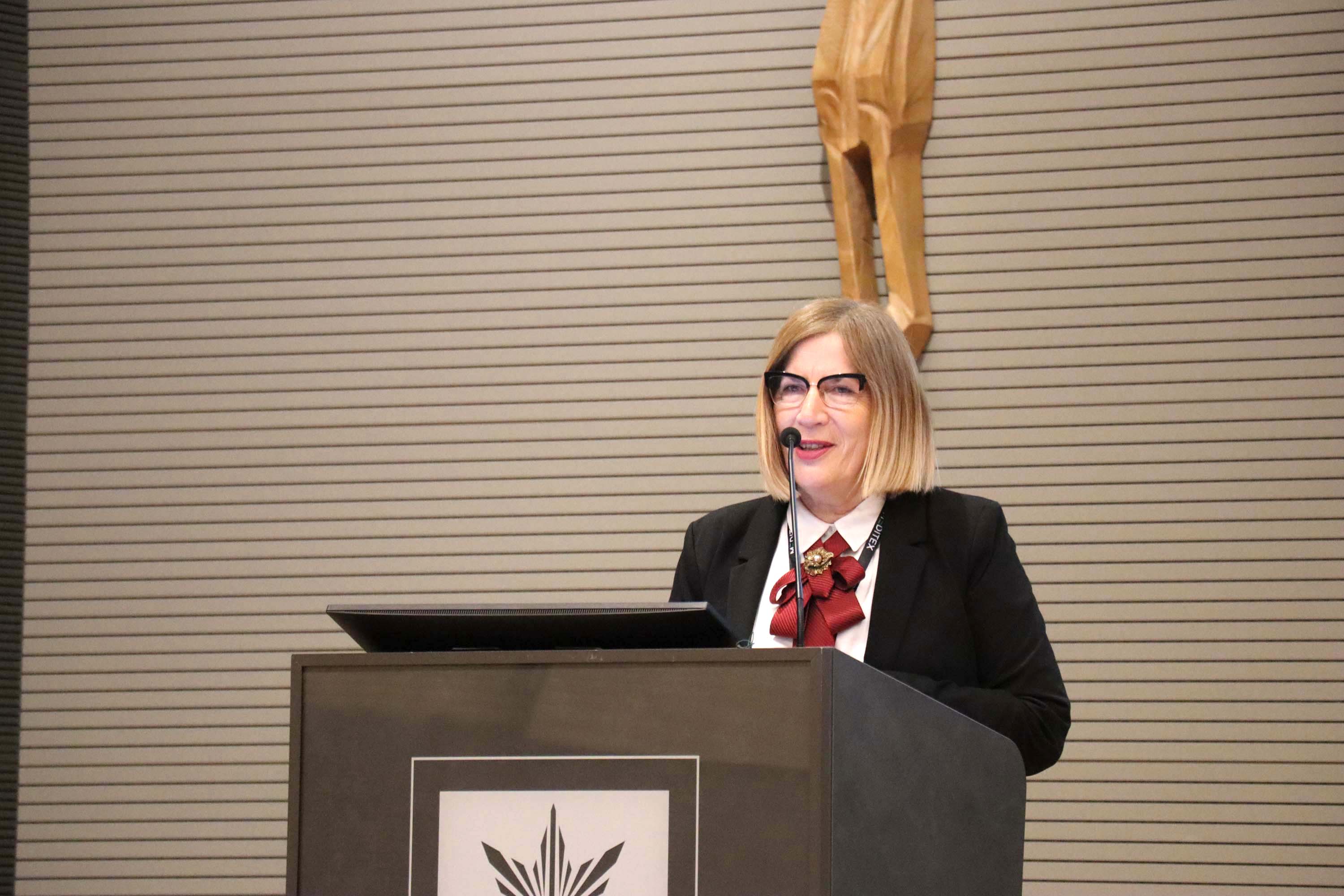
Opening remarks from the Catholic University of Croatia were given by Matko Matišić, President of the Nutrix student club, and Assist. Prof. Ivica Matić, PhD, Head of the University Department of Nursing. Dr. Matić emphasized the Department’s ambition to become a leading center for nursing education, its commitment to strengthening nursing science and professional quality, and plans to enhance cooperation with ministries, partners, and employers, helping students become familiar with their future workplaces.
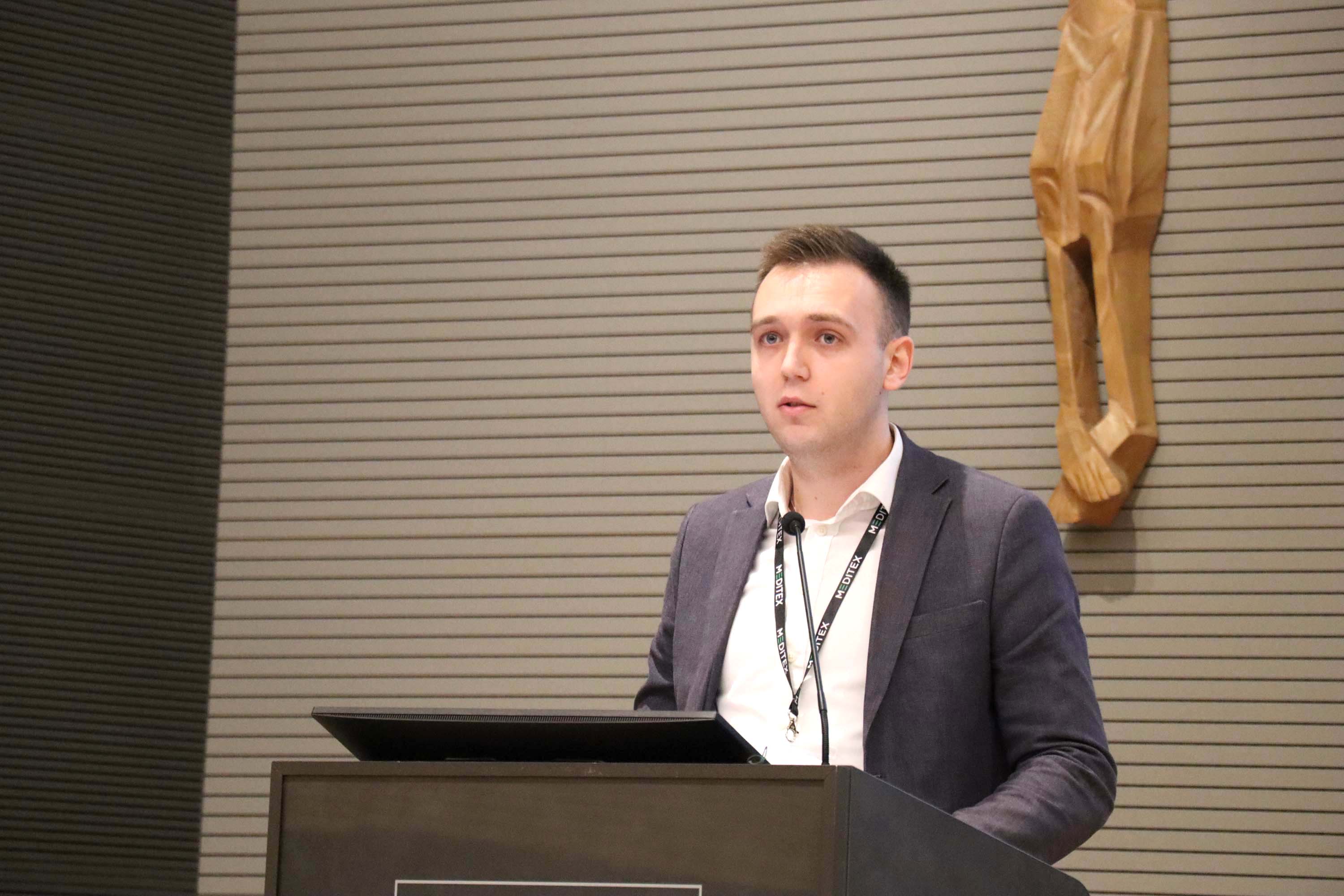 | 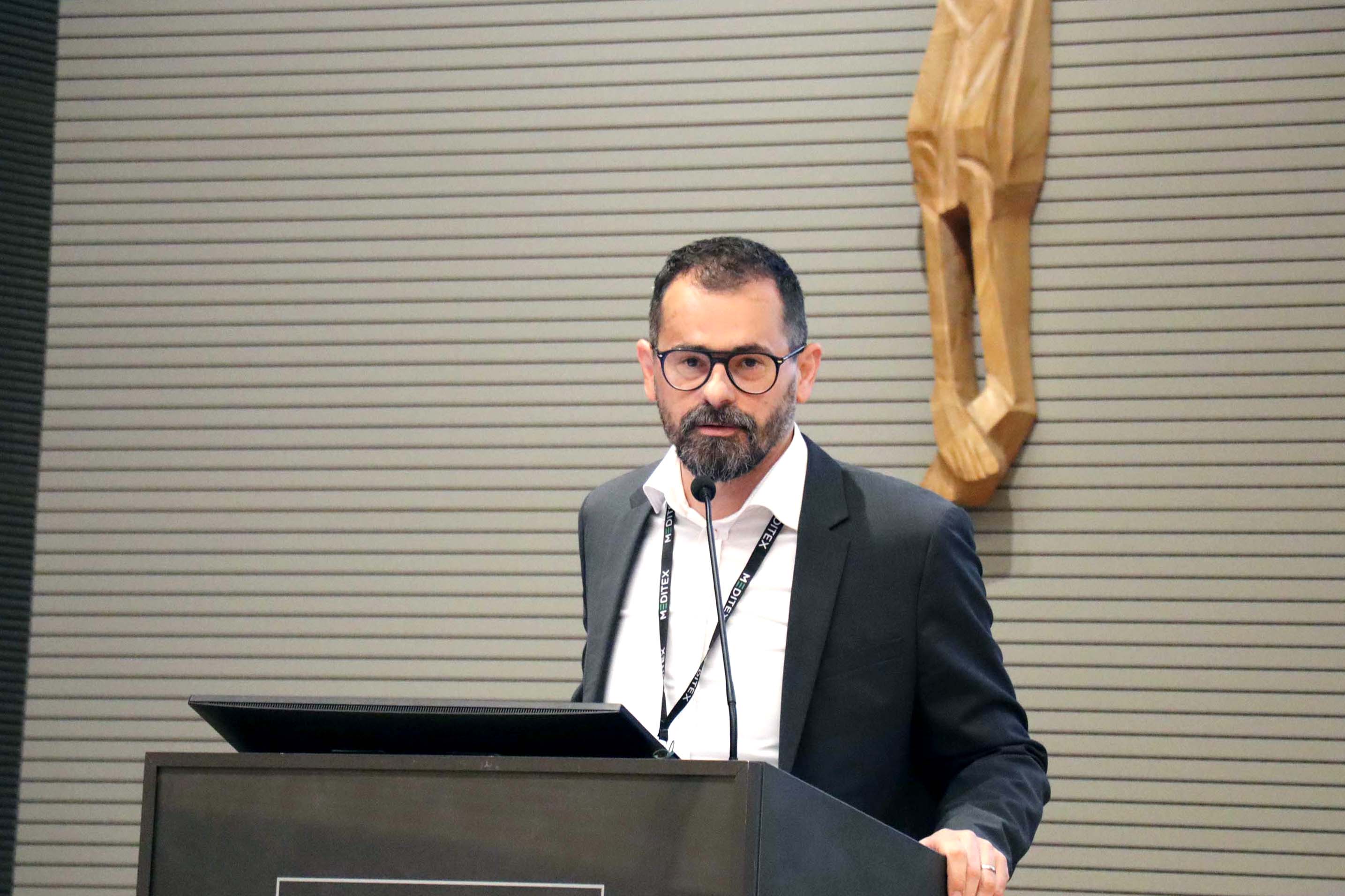 |
The congress continued with a lecture by Ana Ljubas, who stressed that nursing must be recognized as a scientifically grounded and accountable profession. She emphasized the need for institutional support and greater inclusion of nurses in shaping healthcare policies. Her conclusion: nursing is not just a skill but a vocation requiring both societal and professional recognition.
Ivana Portolan Pajić spoke on the importance of specialist training for enhancing competencies. She highlighted lifelong learning, the development of ethical and technical skills, team leadership, and mentoring as essential for ensuring high-quality healthcare aligned with current trends. Tea Andabaka presented the application of artificial intelligence (AI) in research, focusing on generative tools like SciSpace and the importance of ethical and academically responsible use. She concluded that AI can significantly improve the research process when used responsibly. Matea Platužić presented research on needlestick injuries among nurses. Results showed that 58% of respondents do not report such incidents due to underestimating the risk, pointing to a need for education and systematic prevention. Emphasis was placed on the importance of reporting and protecting healthcare workers.
Lara Vinko explored job satisfaction among nurses employed in higher education. Despite challenges such as administrative burdens, most respondents value academic work and knowledge transfer. There is a need to improve working conditions. Marina Bakar and Vilma Kolarić analyzed healthcare workers' dietary habits. Differences in the consumption of wine and sweets were observed between shift workers and daytime workers. The conclusion: dietary adjustments are needed to preserve staff health.
Sandra Blaić presented data on infertility prevalence among operating room staff. 41% of participants had difficulty conceiving, with some attributing it to their workplace. This underscores the need for better working conditions and reproductive health protection. Karla Jakovljević explored the relationship between religiosity and stress coping. Religious respondents more often used spiritual strategies, while non-religious respondents relied on humor and emotional expression. Religiosity was found to have a potentially positive impact on mental health.
Danela Relić addressed the widespread issue of violence against nurses, especially verbal abuse. Nearly half of the respondents said there are no measures to prevent it. Systematic workplace protection measures are urgently needed. Katarina Fofić examined the readiness of final-year students to enter the profession. Part-time students showed greater readiness than full-time students, likely due to work experience. The majority of students were found to be ready for the labor market.
Leopold Kajan investigated student attitudes toward e-cigarettes. More than half use them, but most lack sufficient knowledge about their risks. Better education on smoking cessation and patient counseling is needed. Mirna Talajić analyzed the relationship between sleep, physical activity, and obesity. Regular physical activity was linked to better sleep and normal BMI. Conclusion: obesity prevention requires a combination of sufficient sleep and physical activity.
Ana Tomić demonstrated the connection between physical activity and quality of life among nursing school students. More active students rated their lives more positively. A sedentary lifestyle negatively affected perceived health satisfaction. Monika Jujnović studied internet addiction among high school students. Most showed mild addiction, but no connection was found with physical activity levels. More exercise and awareness of excessive digital consumption risks are necessary.
Ivana Komarica analyzed the quality of palliative care in surgical departments. The study revealed insufficient knowledge of palliative care among nurses. Additional education and professional development are recommended. Monika Tuzla presented the effects of rehabilitation on post-infarction patients. Rehabilitation reduced anxiety and depression, regardless of treatment type. Women were more affected, highlighting the need for individualized care.
Tomislav Maričić compared acute coronary syndrome (ACS) patient characteristics before and during the pandemic. Patients in 2020 were in worse condition and more frequently had hypertension, but outcome differences were minimal. The pandemic did not directly affect ACS frequency. Lucija Caren found that depression, anxiety, and stress reduce quality of life in COPD patients. Longer disease duration increases emotional distress, emphasizing the need for multidisciplinary care.
Antonija Herceg analyzed antibiotic use in cardiac surgery. Overall usage declined, though certain drug groups increased. Education and therapy rationalization are needed. Ana Miloš studied the correlation between EuroSCORE 2 and time spent on a ventilator post-surgery. Higher risk scores were linked to longer ventilator time and more complications, suggesting the need for preoperative evaluation to optimize treatment.
In the final presentation block, CUC nursing students shared their research: Katarina Fofić: student readiness for entering professional practice, Leopold Kajan: knowledge and attitudes toward e-cigarette use, Mirna Talajić: links between sleep deprivation, physical activity, and excess weight, Ana Tomić: self-rated quality of life and physical activity, Monika Jujnović: connection between internet addiction and physical activity.
The day also included plenary lectures on: "Nursing as a Profession: Challenges and Perspectives,” “Patients as the Focus of Nursing Care,” “Nursing Students: Knowledge, Attitudes, and Lifestyle Habits.”

